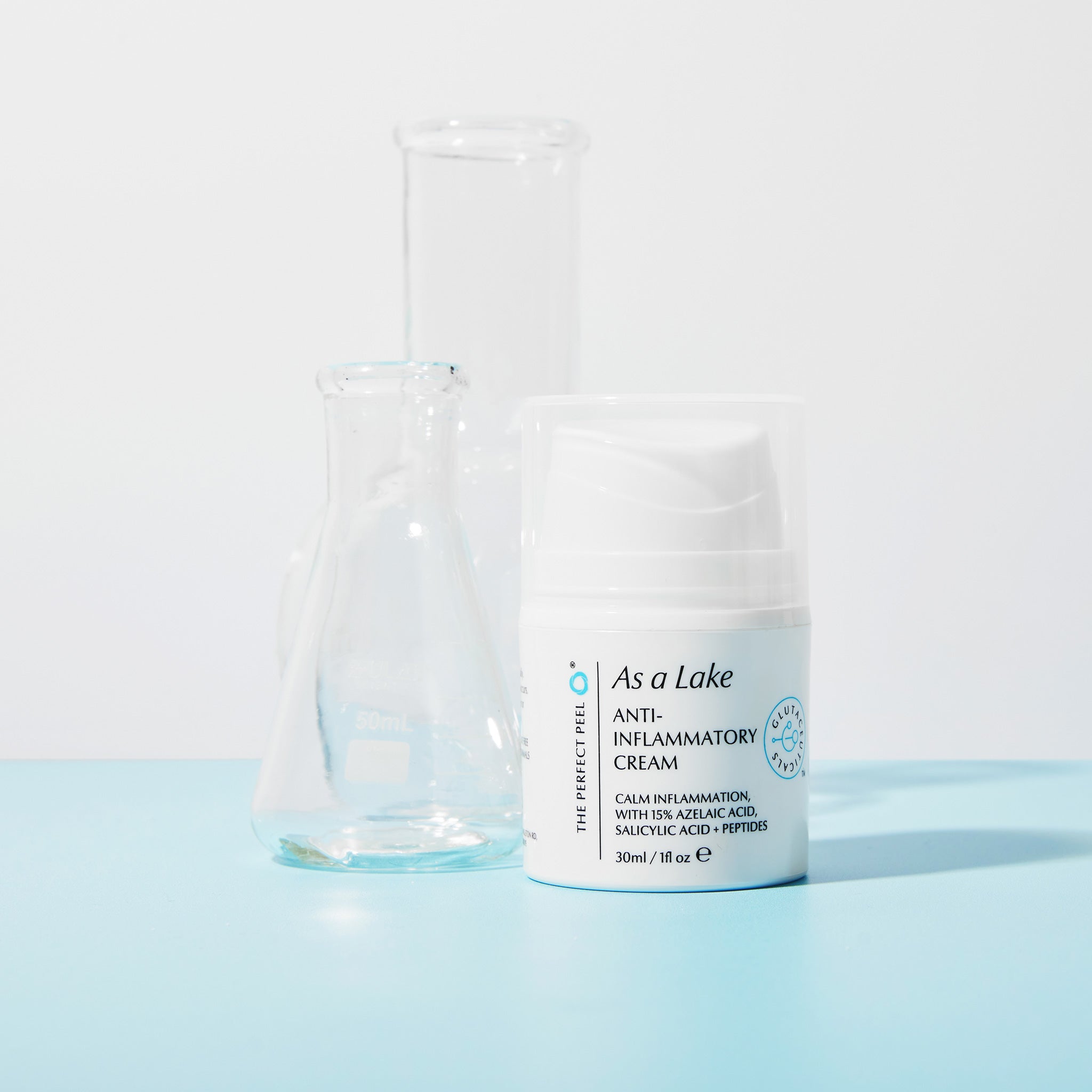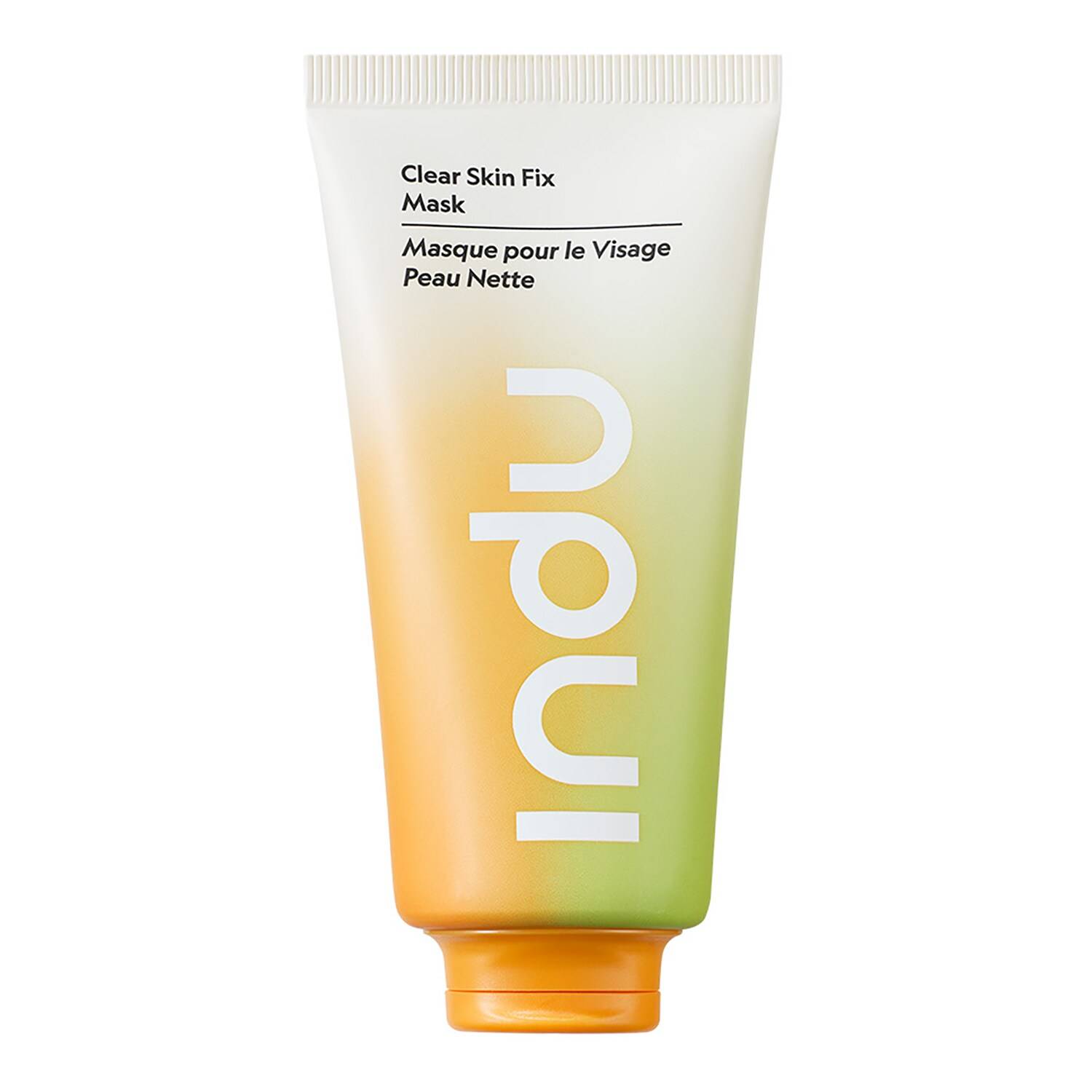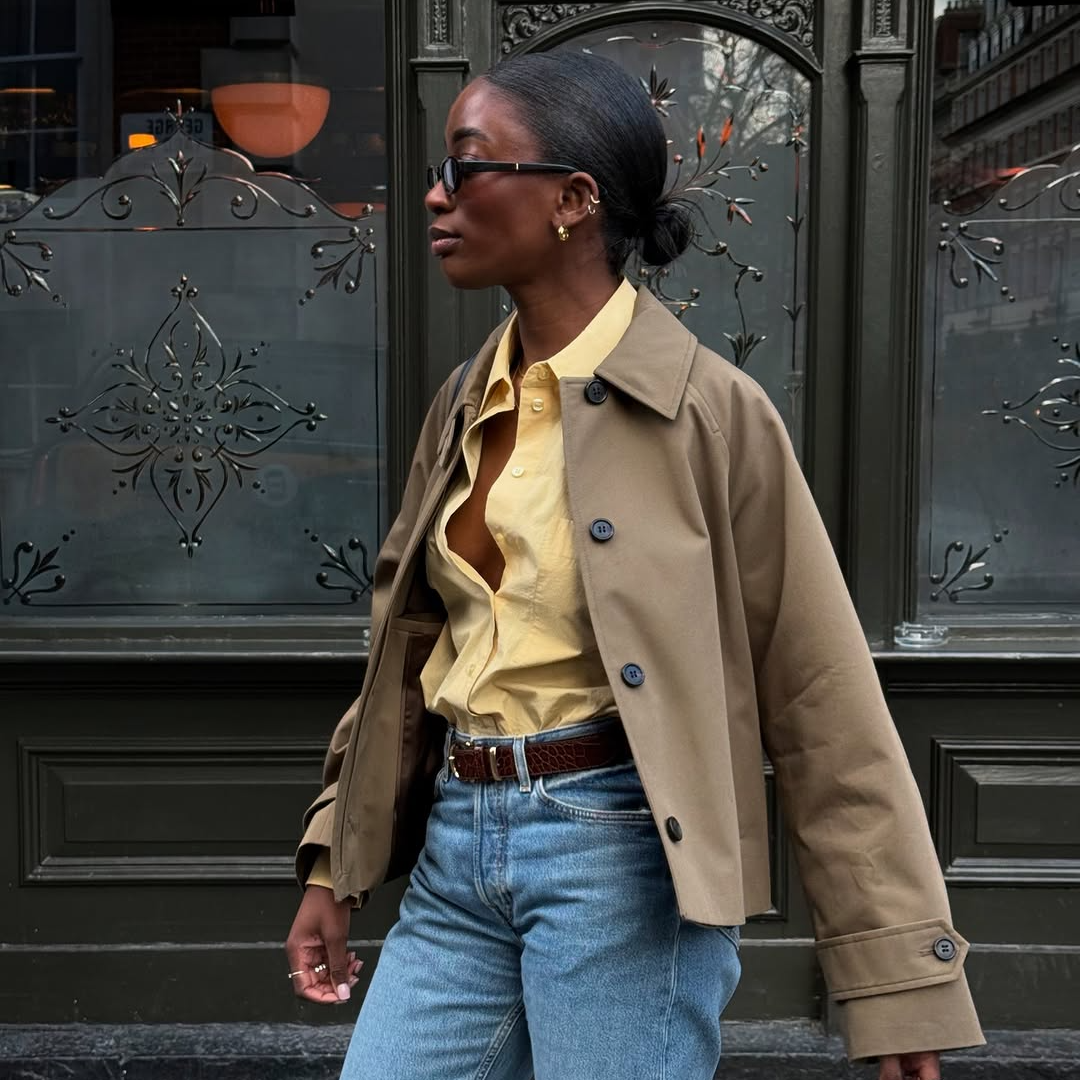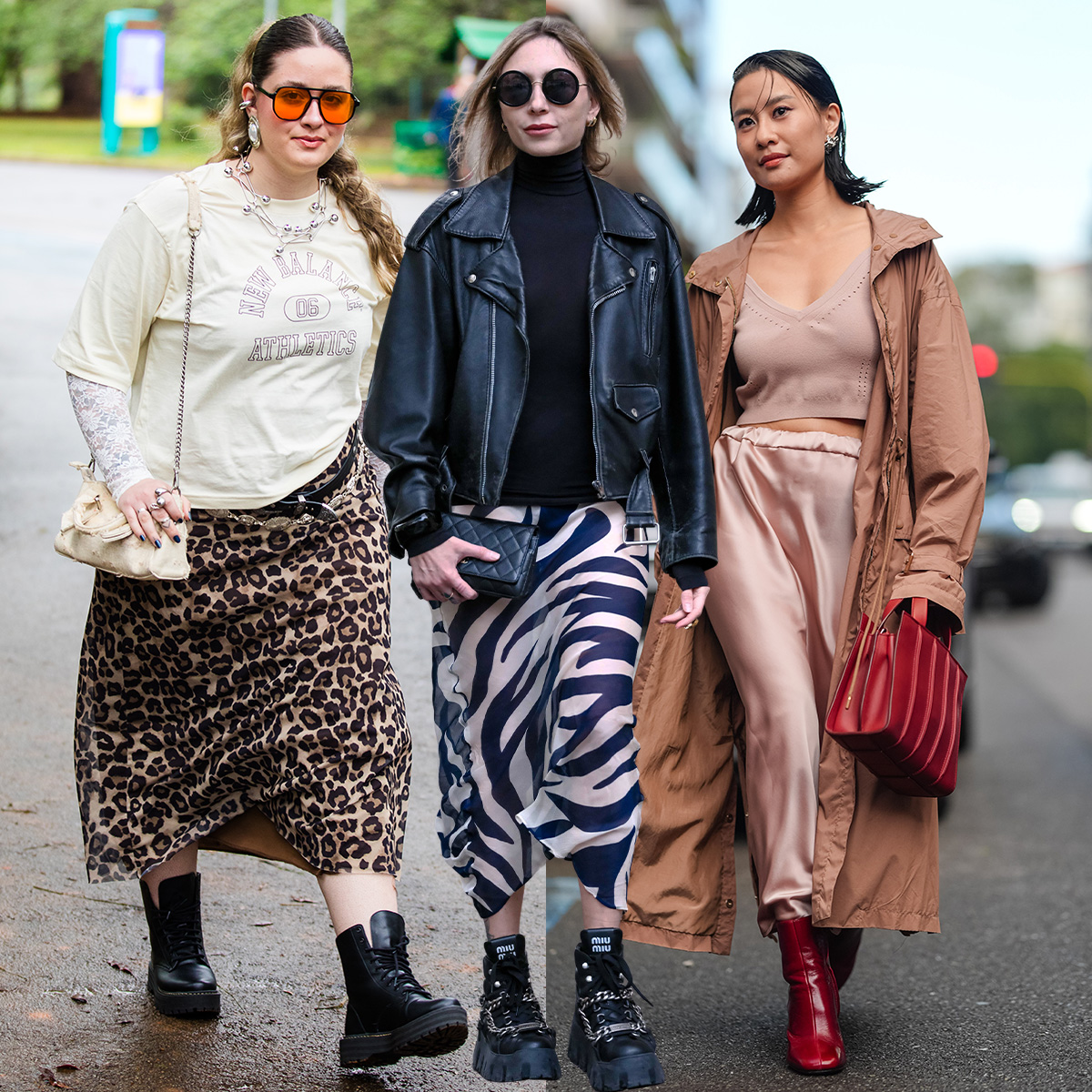I've Spoken to the Experts—These 7 Unexpected Skincare Trends Will Be Huge in 2025
The time has come again to look forward to the new year—and in beauty, that means setting out the skincare trends set to shape 2025.
My favourite way to do this? Speaking to the experts themselves. Granted, these days it can seem that the traditional trend cycle is broken and that every instance of virality or popularity stems from TikTok. But often, these microtrends are part of wider movements that trend forecasters and skincare insiders can spot coming years in advance.
From dermatologists and aestheticians to trend experts, editors and beauty brand founders, those who live and breathe beauty are the true masters of spotting (and setting) trends. Fuelled by data on the products and ingredients people are searching for asking about, they have a unique perspective on what direction skincare will take, and the way this will translate into our everyday beauty routines.
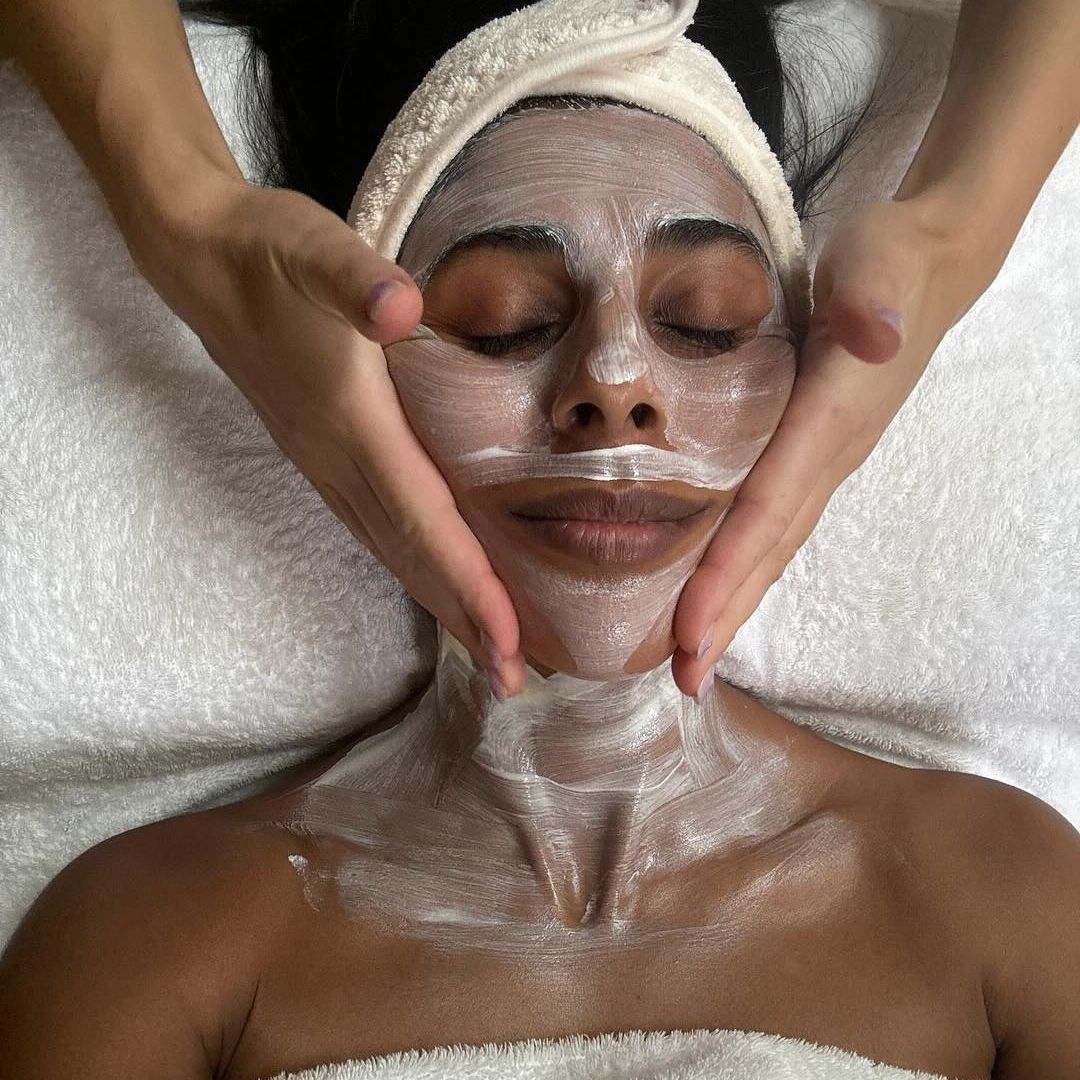
So without further ado, what is worth taking note of as we approach the start of 2025? From the latest buzzword skincare ingredient to the devices set to take over our skincare routines, keep scrolling to see and shop the best skincare trends of 2025.
1. Streamlined Solutions
"The wake of 'Brat Summer' and many iterations of the 'Indie Sleaze' aesthetic, as well as a general feeling of hedonism amongst the political atmosphere and impending climate crisis, are really feeding into a release of control," says trends analyst Alex Bee. "This is leading to a rejection of arduous skincare routines and overly fussy packaging, embracing single products that work hard so you can party hard."
Expert facialist Kate Kerr agrees. "Consumers are moving towards minimalist beauty routines with fewer [but more efficacious] products," she adds. "This shift encourages brands to simplify offerings, creating multi-ingredient formulations that achieve maximum results with minimal steps." It totally makes sense—why force yourself through an extensive multi-step skincare routine when you can get the same results with a few select products?
We're already seeing brands like The Ordinary shift away from its initial "ingredient-only" approach to skincare, with its latest product launches incorporating multiple ingredients within one multi-tasking formula. The result? A speedier and more streamlined skincare routine, and no need to worry about layering and mixing the wrong combinations of ingredients. Expect your skincare shelf to look a lot less cluttered in 2025.
Shop the Trend:
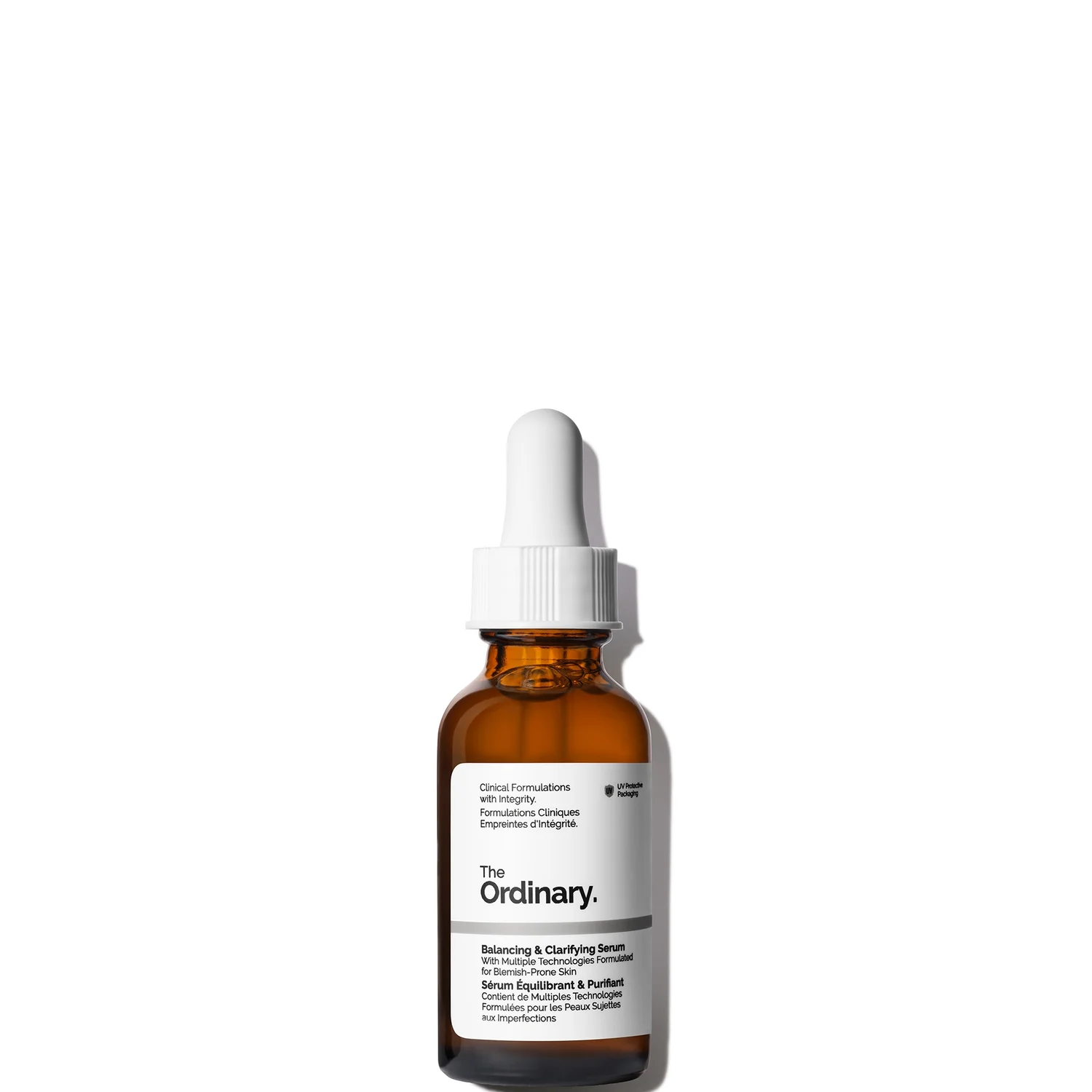
Whilst previous breakout-oriented products from The Ordinary made heroes of individual ingredients like salicylic acid and niacinamide, its latest launch is a skin-clearing serum which draws upon the benefits of five active ingredients.
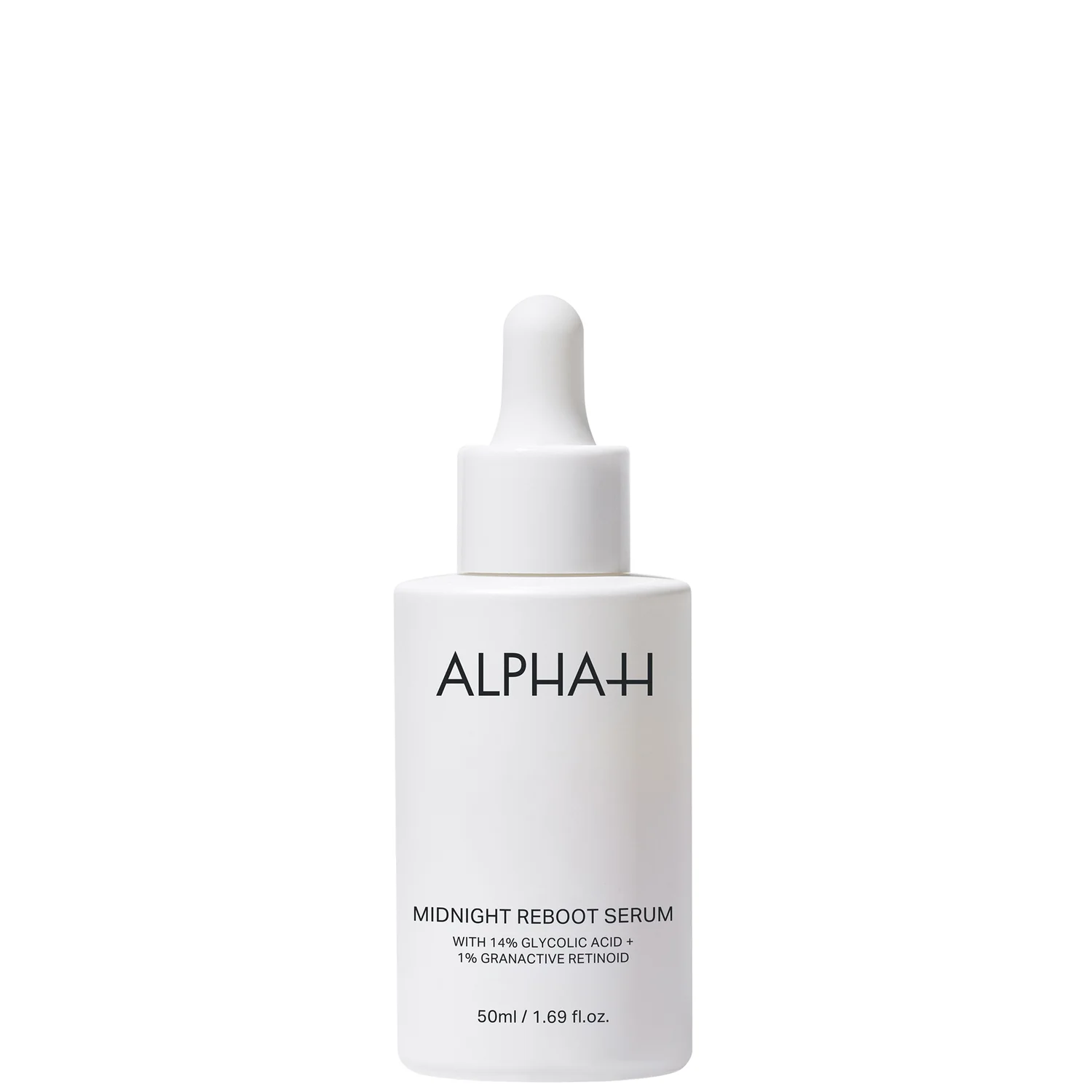
Layering glycolic acid and retinol yourself with two separate products is an absolute no-go. But in a formula like this where they've been perfectly matched and balanced, they're safe enough to use together every day, so you can enjoy the benefits of both without worrying about any unwanted side effects.
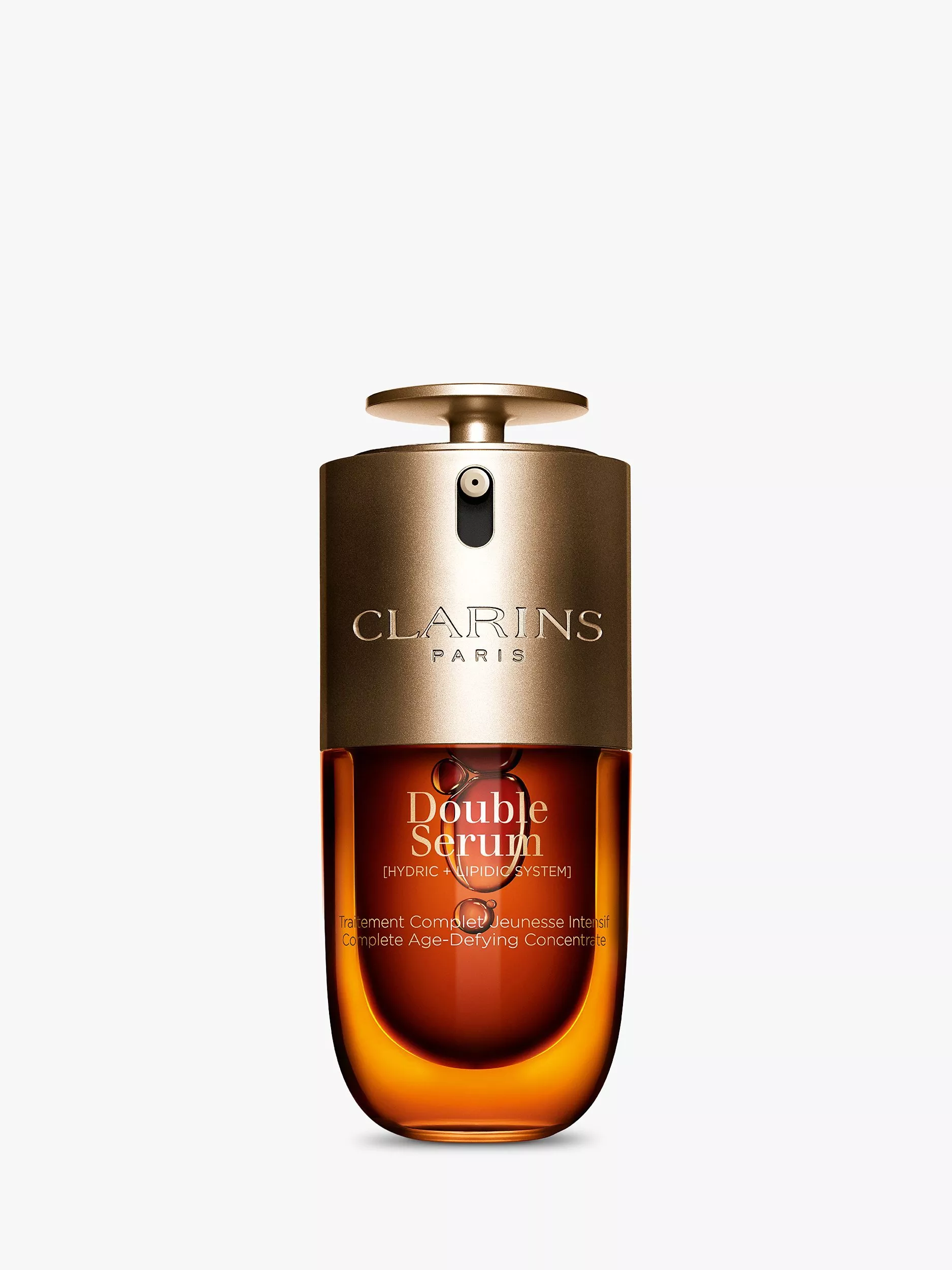
This multitasking serum is powered by a grand total of 22 plant extracts and five pure active molecules, allowing it to target everything from wrinkles and dullness to enlarged pores and slack skin in one fell swoop.
2. Professional-Approved
The past few years may have seen the boom of influencing impacting our beauty shopping habits, but according to Meg Lucas, co-founder of Stria Lab, 2025 will see us turning to experts for advice instead. "With cost of living pressures, people are carefully choosing where to spend, seeking transparency on product efficacy and science-backed results," she explains. This means that more of us are turning to the likes of dermatologists and aestheticians (many of whom have online presences) for skincare tips and product recommendations that come with enhanced expertise, authority and trustworthiness.
As part of this movement, many consumers are going straight to the professionals for personalised advice instead of scrolling their social media feeds. "We’re hearing from a lot of dermatologists that they are now spending time in their clinics undoing the results of skincare routines that people (especially young people) have learnt about online and which have actually caused more problems," says Bee.
According to expert aesthetician Corina Mihalache, this will lead to a growing demand for professional treatments that complement at-home skincare routines. "Clients are increasingly informed about skincare and are incorporating active ingredients like retinoids and AHAs at home," she says. "In 2025, I expect to see more clients seeking in-clinic interventions, such as radiofrequency microneedling and medium-depth chemical peels to enhance their [at-home] routines and maintain results, especially treatments that fit seamlessly into busy lifestyles."
Skin expert Debbie Thomas, who offers detailed skin consultations to her clients, agrees. "In this new landscape, bespoke and combination treatments are key," she says. "Consumers want a practitioner who can assess their skin and create a tailored program for them."
This has also led several prominent and experienced skincare professionals to launch their own skincare brands; capsule collections of products designed to deliver salon-worthy results thanks to pro-approved ingredient line-ups.
Shop the Trend:
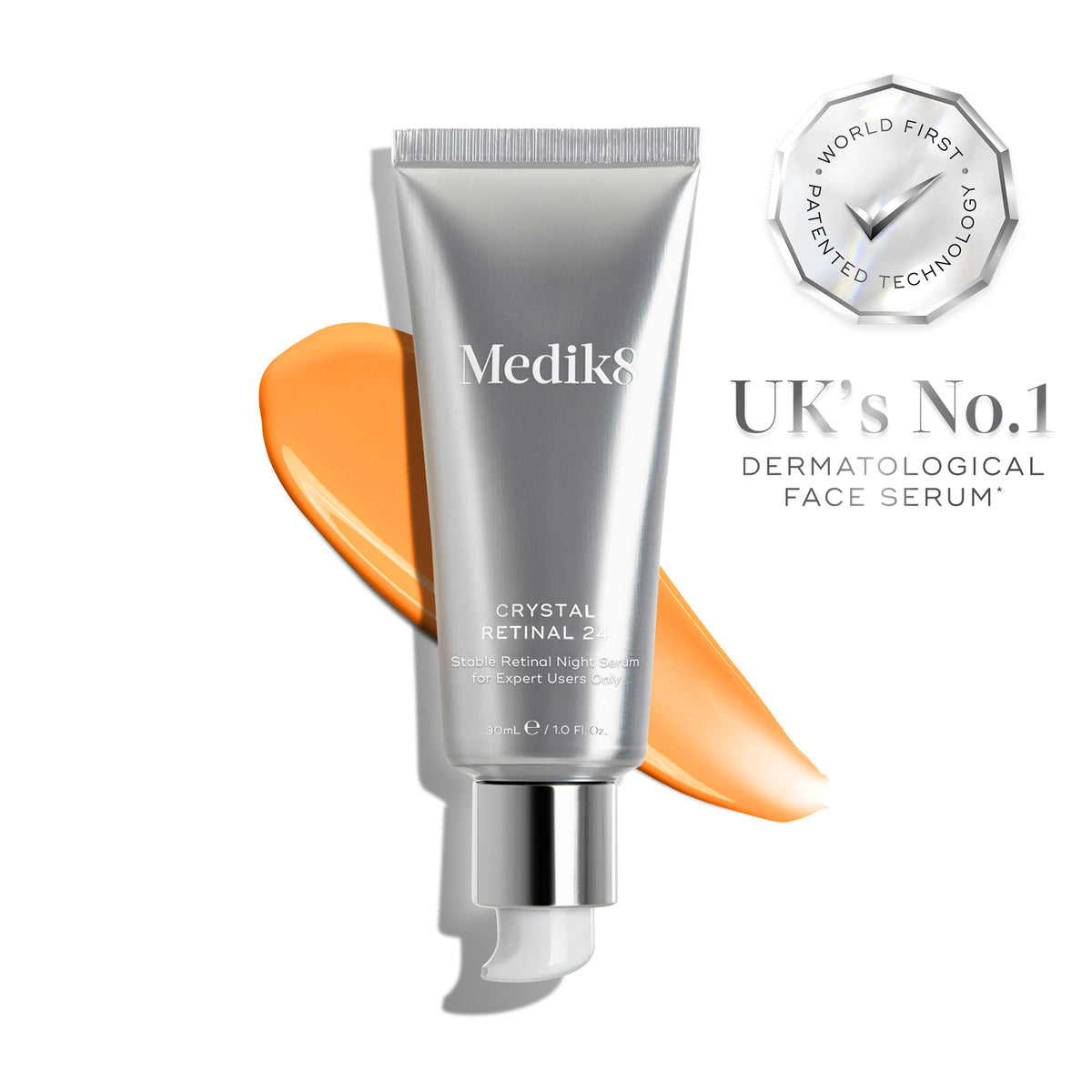
Medik8's tried, tested and trusted CSA philosophy (that's vitamin C, SPF and vitamin A) provides a more streamlined routine without compromising results. Crystal Retinal is a staple amongst skin experts and editors for its non-irritating formula that helps to address everything from fine lines to pigmentation and acne. Plus, you can gradually work up the increasing strengths as your skin acclimatises.
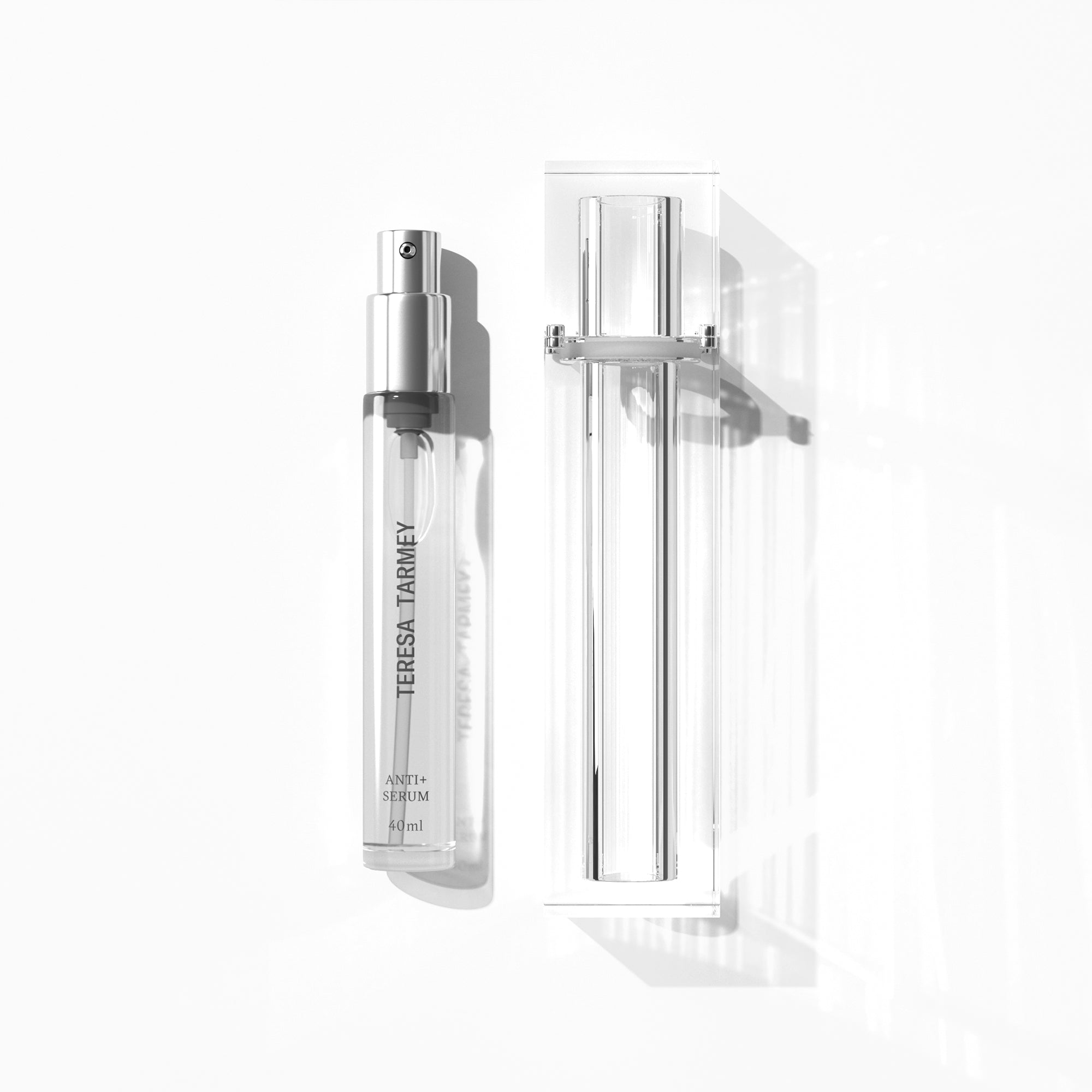
With 27 years of expertise as a facialist and more than 50,000 hours of hands-on experience, it only made sense that Teresa Tarmey—one of the world’s most sought-after skincare experts—would eventually launch a brand. This souped-up serum features a high concentration of antioxidants, a prebiotic and a blend of peptides to deliver anti-inflammatory and anti-ageing benefits.
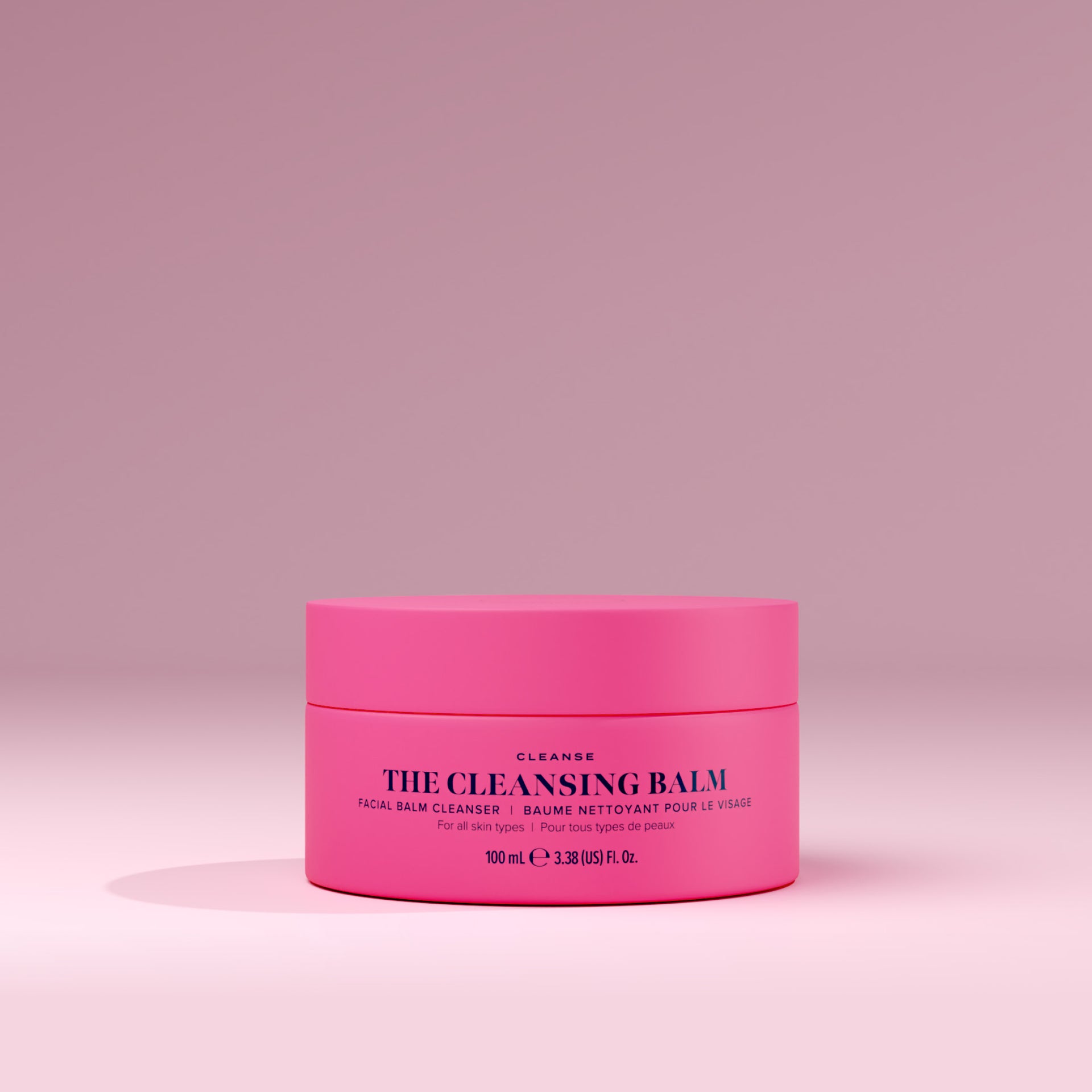
Caroline Hirons started her career in the industry as an aesthetician 35 years ago before building an online presence where she became known for the in-depth and brutally honest product reviews she shared on YouTube. It only made sense when, in 2022, she announced the launch of her skincare brand, Skin Rocks. The latest launch is this indulgent cleansing balm—the next best thing to a facial in a jar.
3. Home Skincare Devices
Whilst skincare technology like LED light therapy masks, microcurrent sculpting devices and sonic cleansing brushes have featured in trend reports frequently over the past few years, 2025 is set to be the year that they become true staples in our home skincare routines. Why? Thanks to advancements in technology, brands are now able to retail these devices at more affordable and accessible price points.
In the past few months, home tech brand Shark (known for its vacuum cleaners and, more recently, hair tools) made its first foray into the skincare tech world with the launch of its CryoGlow Mask (£270)—a device which combines red and blue light therapy with under-eye cooling cryo technology. A few months earlier, skincare tech leader CurrentBody launched a new and enhanced version of its best-selling, travel-friendly Skin LED Light Therapy Mask, proven to deliver visible anti-ageing results.
"Despite us using them in clinics for many years, devices like LED masks have gained popularity, with clients asking about them for at-home use more and more this year," says Kerr. "Major brands are entering the market, and I see the rise of tech-enhanced beauty continuing as advanced skincare becomes accessible from home."
Shop the Trend:
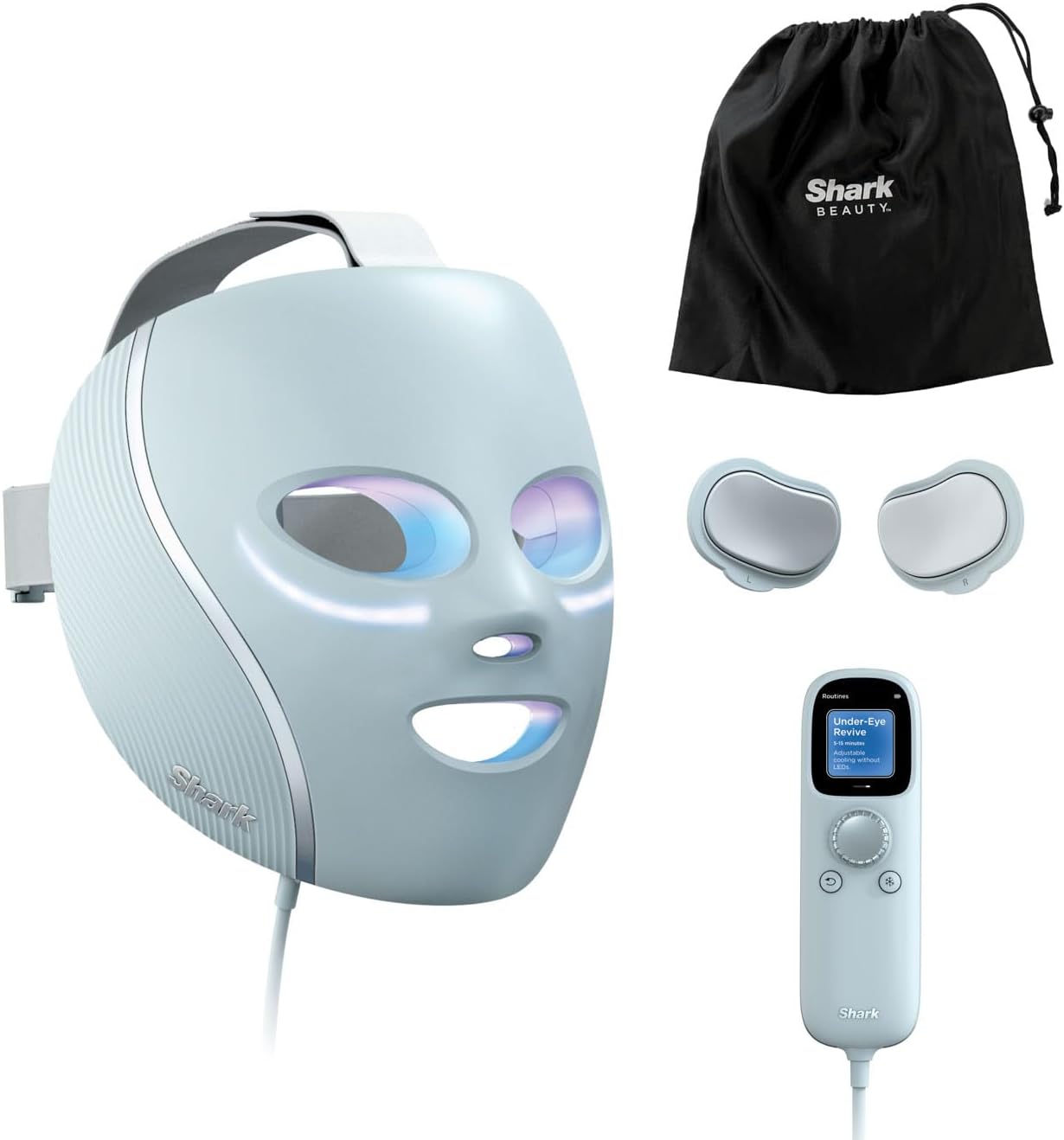
At £270, Shark's LED mask is one of the more reasonably priced options on the market and comes with dermatologist-approved specifications. There are multiple settings to target everything from fine lines to breakouts, whilst under-eye chill pads cool and depuff. If £270 still seems expensive, consider it an investment. Experts will advise you against spending less than £250 or buying a device from an unknown brand as you're unlikely to see the same results.
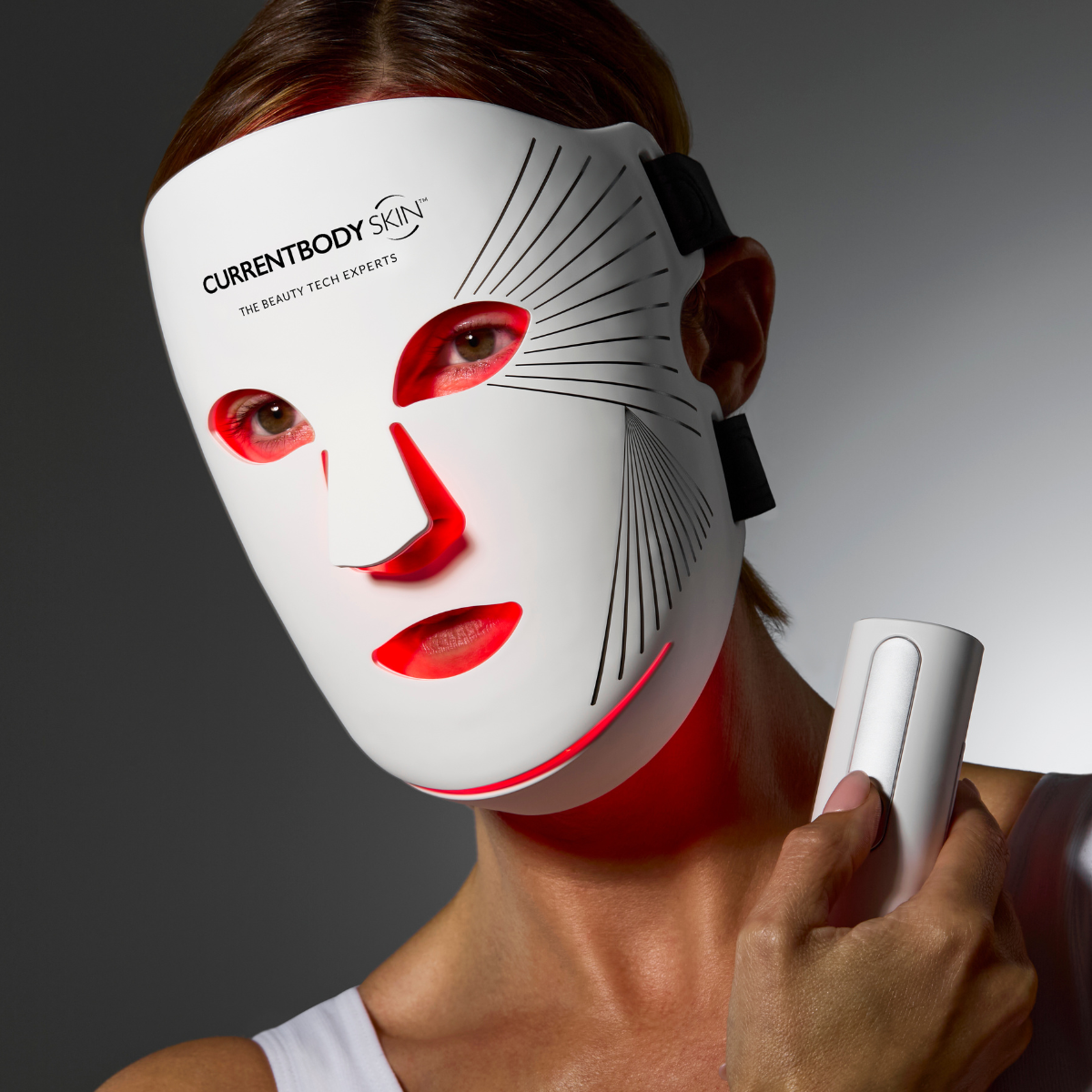
CurrentBody's original LED mask clocks in under the £300 mark, but the newly launched (and more expensive) Series 2 has improved and enhanced functions, with more bulbs, better light coverage and the addition of deep near-infrared light.
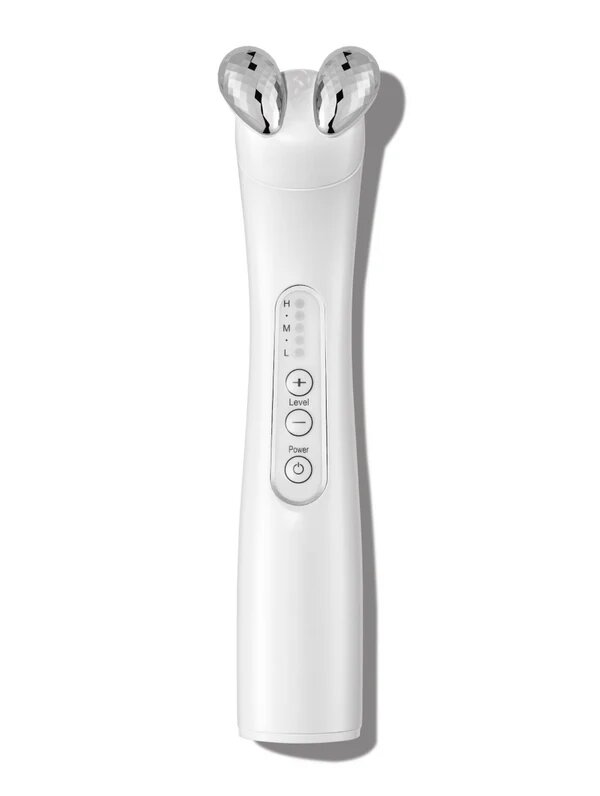
If you've ever been for a sculpting and lifting facial, chances are you'll have experienced a device like this. For home use, FaceGym's version is slightly less intensive than professional devices, but thanks to electro-muscle stimulation, it still works impressively to define facial contours.
4. Exosomes
Those in the know may have already started to pick up on the buzz surrounding exosomes—tiny extracellular vesicles which act as cellular messengers and are loaded with growth factors, proteins and genetic material to promote tissue repair and rejuvenation.
"Patients are increasingly interested in regenerative medicine for lasting solutions to skin and hair issues," says Mihalache. "We are introducing E-50 exosomes, derived from salmon [within our treatment range], that leverage proven regenerative efficacy, and I predict this to be a big trend for 2025."
"Used for skin and hair regeneration, exosomes are cultivated in stem-cell form," she explains. "This can be combined with microneedling or radiofrequency microneedling to increase absorption, followed by TargetCool, which delivers exosomes with cold CO2 particles to reduce inflammation and boost skin recovery." The results include collagen stimulation, improved cell turnover, melanin regulation and restored skin elasticity; offering lasting skin rejuvenation.
It's unlikely we'll see exosome skincare products hitting the shelves of the high street just yet, given that exosomes are known to be unstable and are costly to formulate with, but some luxury brands are beginning to experiment with the ingredient and others that are similar.
Shop the Trend:
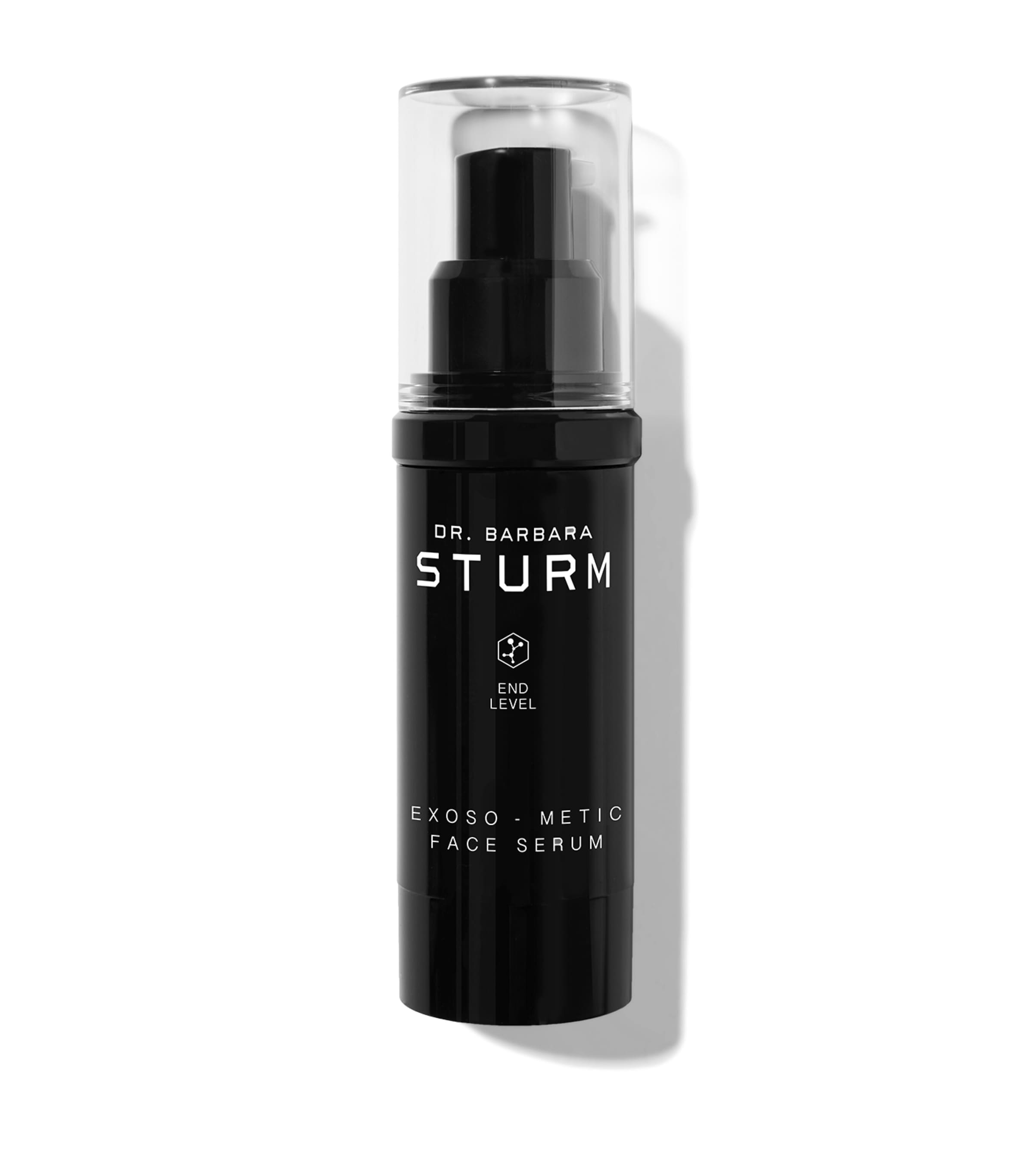
Powered by lab-synthesised exosomes which contain a variety of growth factors such as proteins, peptides, lipids, RNA and DNA, this serum helps to encourage skin regeneration, leading to improvements in texture and pigmentation.
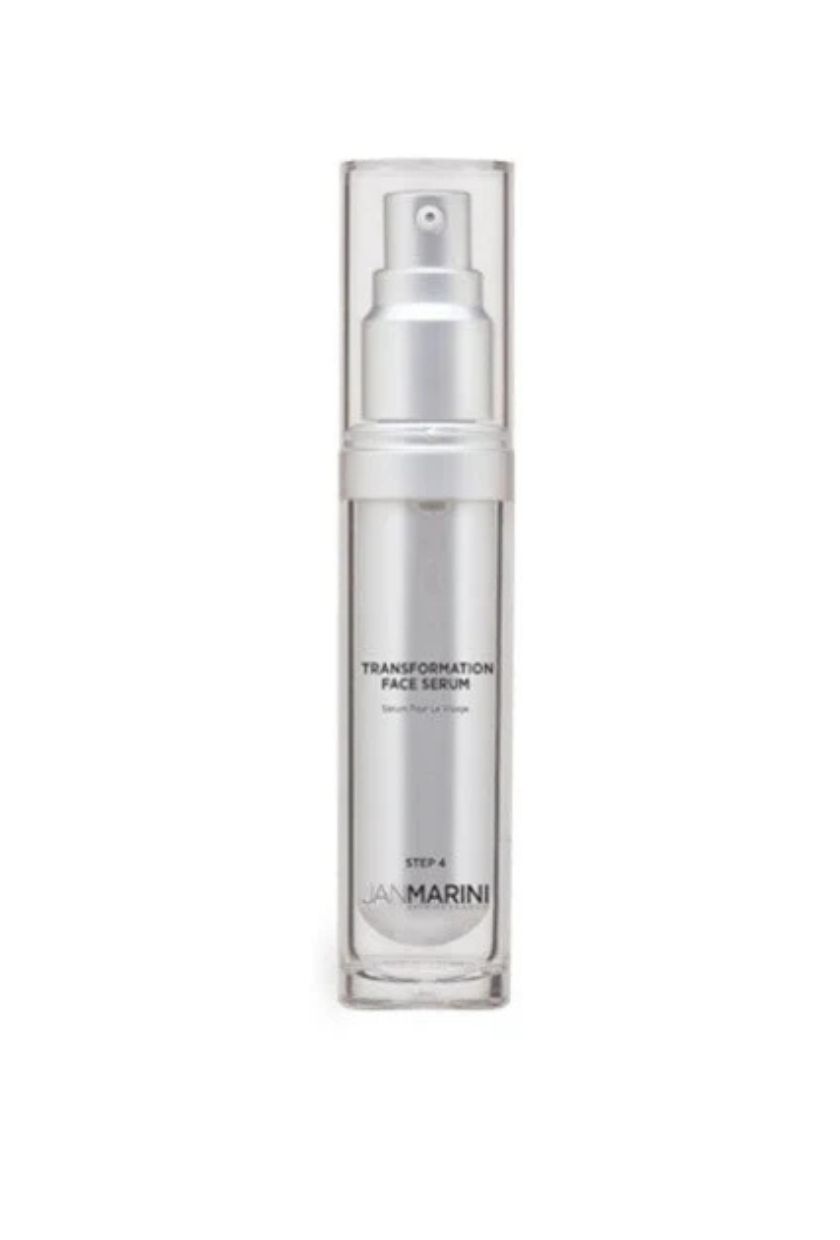
This formula draws upon equally potent noteworthy actives like peptides and growth factors to deliver skin-rejuvenating results by boosting collagen and elastin production.
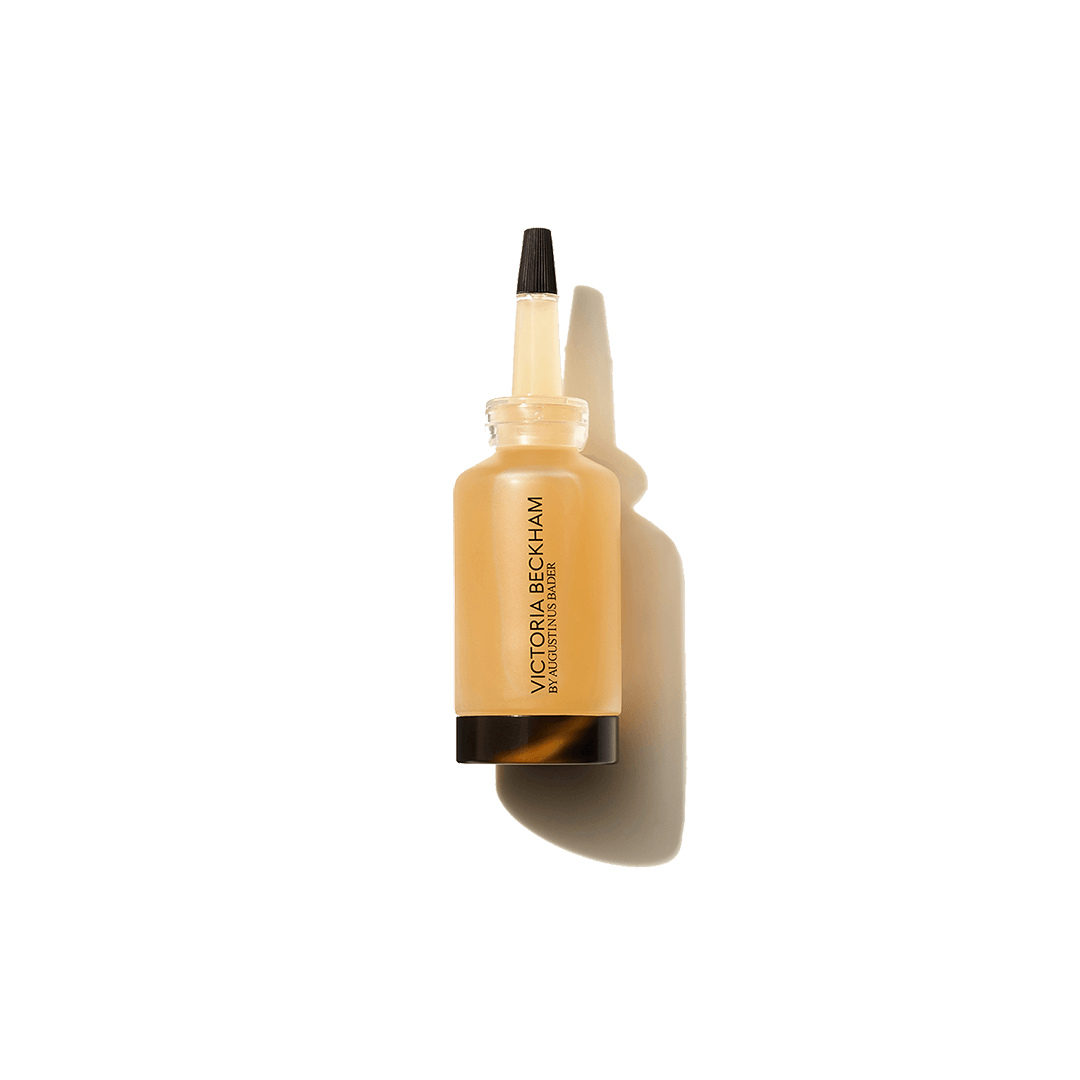
The magic in this formula is a blend of natural amino acids, vitamins and peptides (known as TFC8) that's designed to nourish and protect the skin.
5. Neck-Specific Skincare
We're all well aware that "bodycare is the new skincare", with skincare-first brands like Byoma, The Inkey List and The Ordinary having made their first forays into the category in 2024. However, for 2025, things are looking set to get even more specific.
"We believe bodycare will remain a strong focus in 2025, particularly for products that offer tangible, targeted results," says Fiona Toomey, Founder of natural bodycare brand NAYDAYA. "Consumers are moving away from "pamper products" and are instead seeking bodycare that delivers real benefits."
But according to Toomey, neck products in particular will take off in 2025. "The global neck-cream and mask market is projected to reach $43 billion by 2032, growing at a rate of 10% each year," she explains. "We’ve already seen an increased focus on neck-specific products, such as creams and masks that target the delicate skin of the neck, providing firming, hydrating and anti-wrinkle benefits."
Given that the neck is one of the first areas of our bodies to show signs of ageing, it makes total sense that this would be of particular focus. So, if you haven't already, you can expect to add a neck cream or serum to your skincare routine next year.
Shop the Trend:
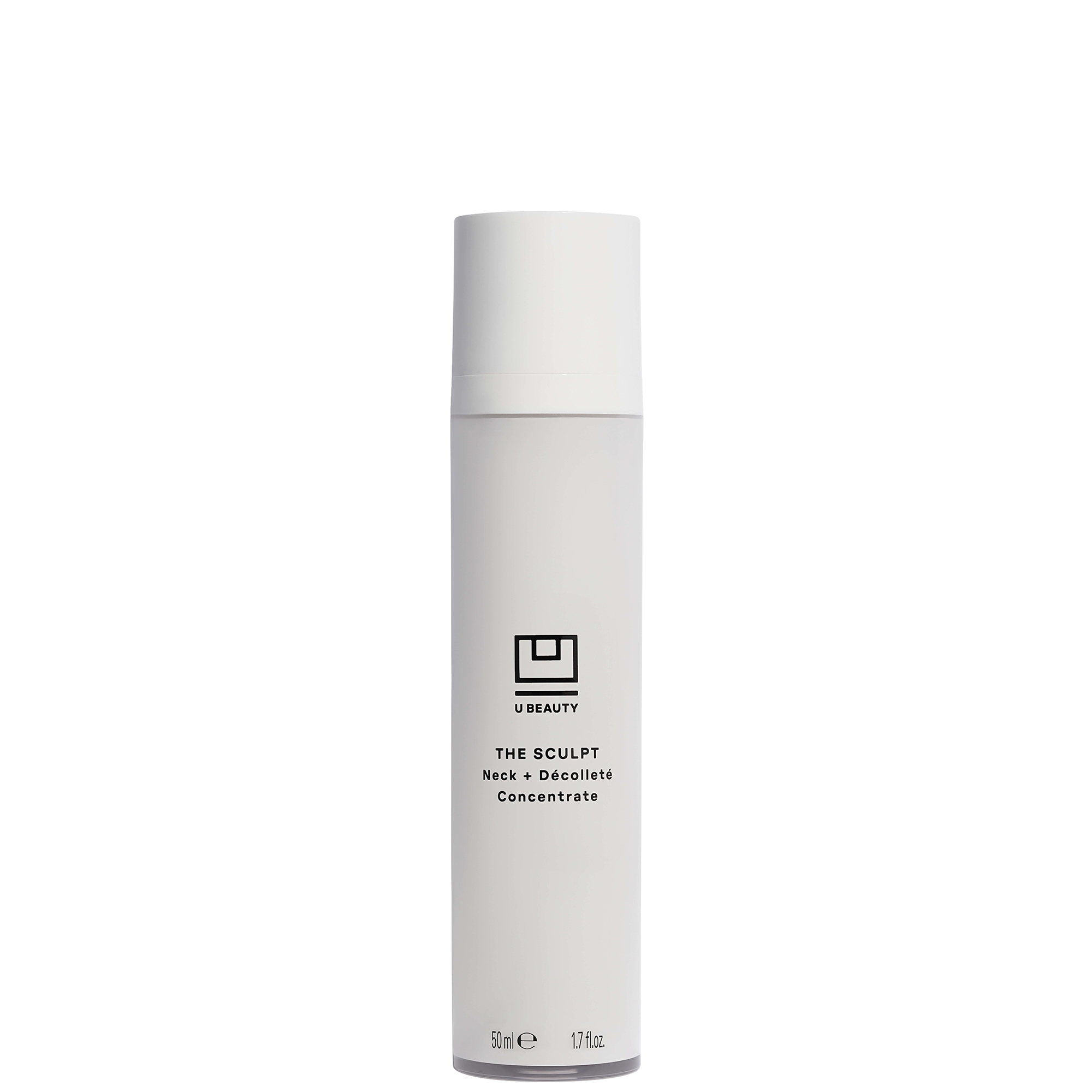
Unlike old-school neck creams, which are really no more than thick moisturisers, this potent formula is packed with skincare actives. Apply daily to visibly tighten, lift and contour the skin on the neck, chest and jawline.
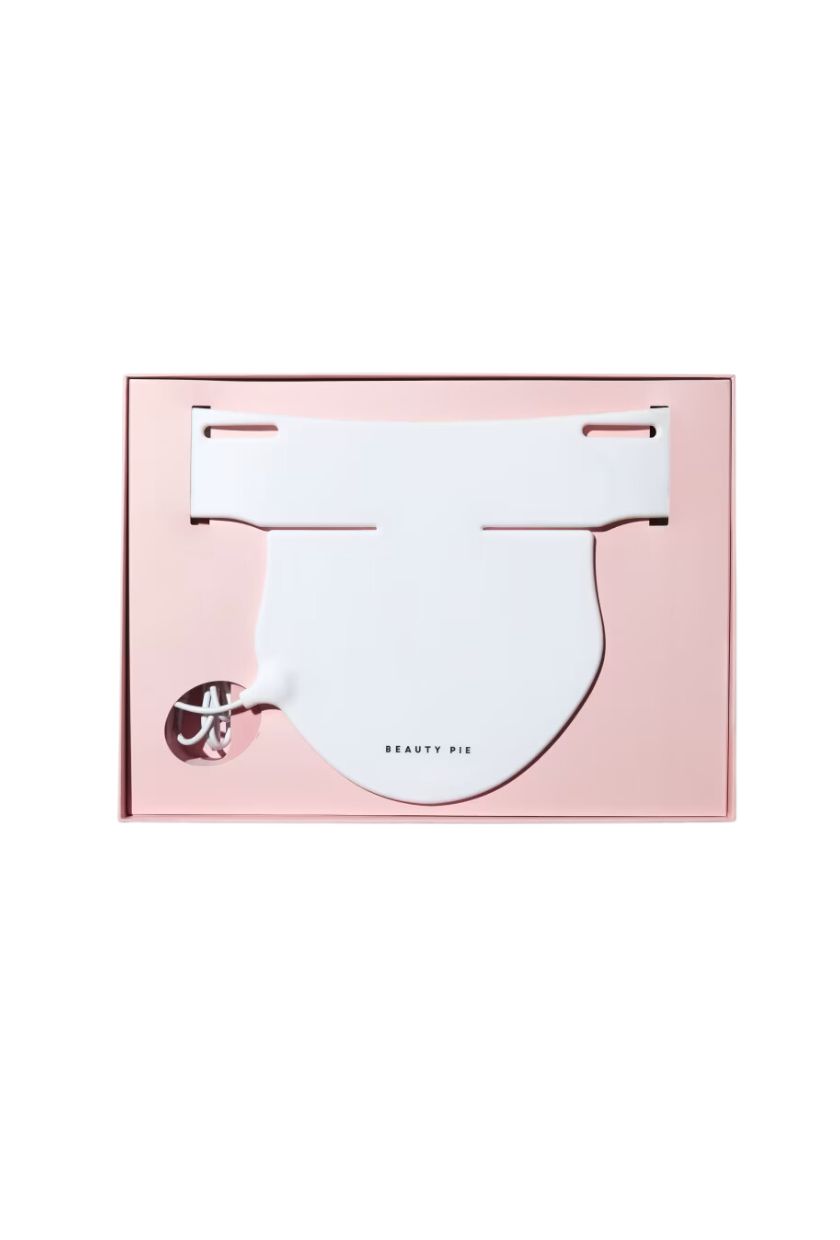
Price shown is members' price.
Beauty Pie's LED mask is already loved by editors. Now, the new C-Wave LED Mask for Neck & Décolleté means your neck can reap the benefits too.
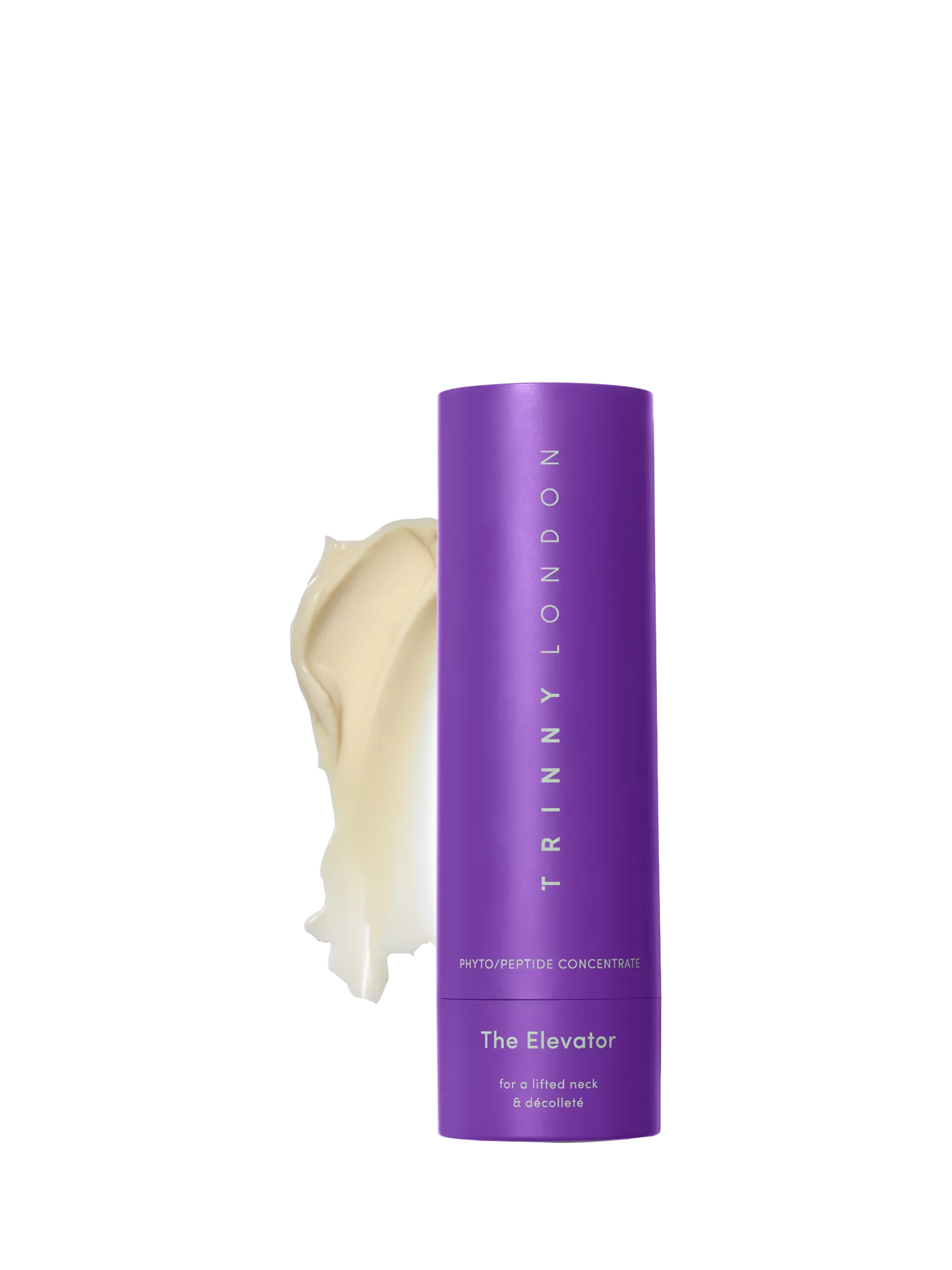
The reviews and before-and-after photos for this newly launched product are majorly impressive. Plus, the rich, balmy formula feels incredibly nourishing.
6. Preventative Products
It's something I've experienced firsthand from chatting to my skincare-obsessed friends and family members—we're now so clued up on how to deal with our skincare concerns that the focus is now shifting to our long-term skincare health—what experts are terming as a shift from corrective to preventative care.
"In 2024, I’ve seen more patients in their twenties and thirties seeking preventative treatments and evidence-based at-home skincare, focusing on maintaining skin health and slowing the ageing process before major issues arise," says Mihalache. "This rise in preventative skincare is driving demand for less invasive treatments given earlier, like microneedling and customised facials, which help preserve smooth texture and even skin tone."
"With increased awareness of collagen and elastin breakdown, consumers are moving from temporary fixes to treatments that strengthen the skin from within," adds Lucas—and Stephanie Matson, marketing director at Dr. Organic, agrees. "There is a growing emphasis on overall skin health rather than simply targeting cosmetic issues like wrinkles or blemishes," she adds. "Consumers are more informed than ever about supporting their skincare needs, balancing the skin barrier, microbiome health and overall skin resilience. This isn’t about short-term solutions—consumers are willing to put in the work to benefit in the longer term, marking a shift to a more maintenance-focused approach to skincare."
Whilst there's certainly no need to get too far ahead of yourself, being mindful of the skin concerns you might expect to experience within the next decade is a good way to prepare your skin for the future. For those in their teens or 20s, that means keeping skin well hydrated and wearing a high-factor sunscreen daily. If you're in your 30s, you might want to consider adding collagen-stimulating ingredients like vitamin C or a retinoid into your routine.
Shop the Trend:
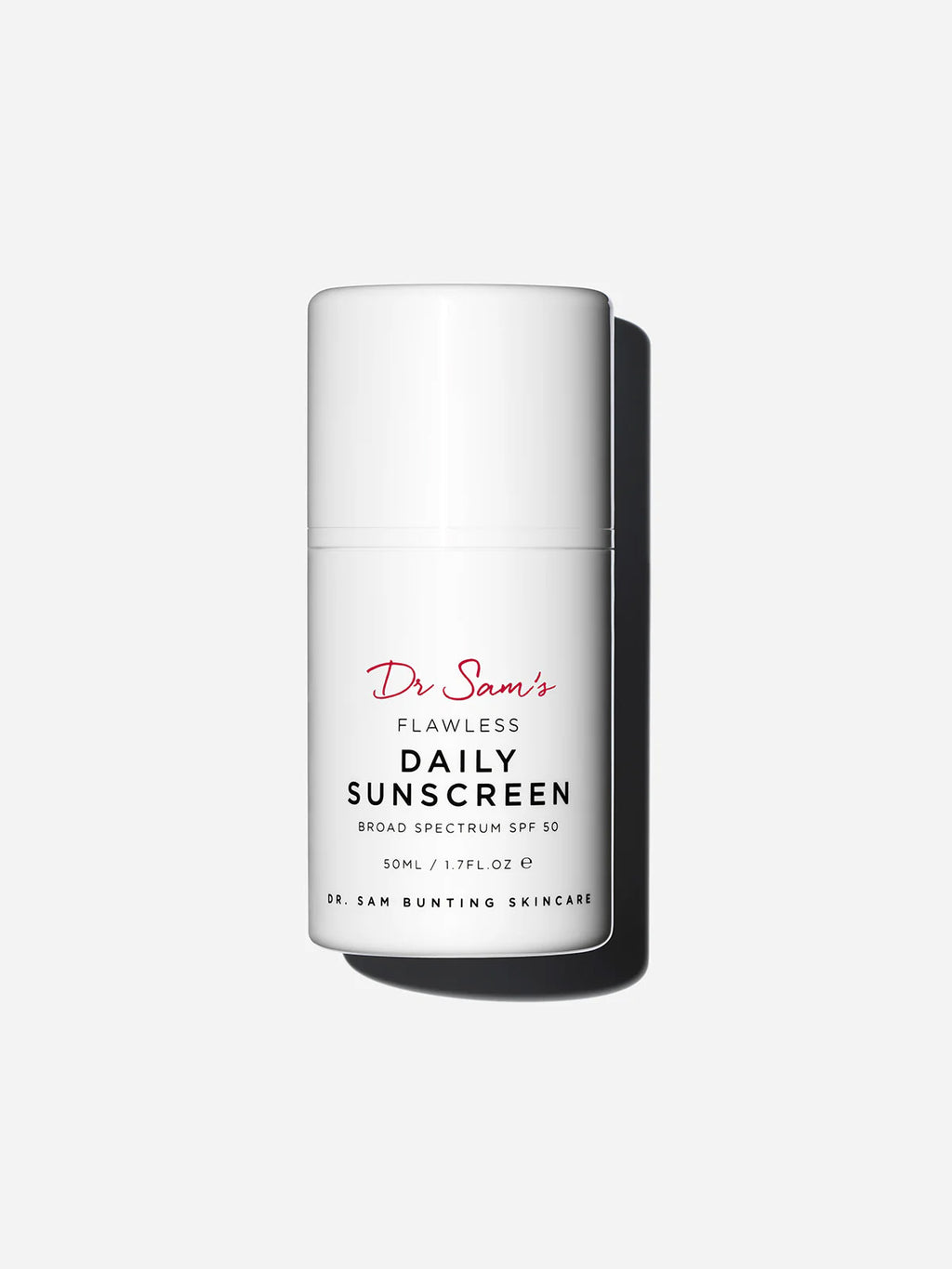
It's true that SPF really is the only true anti-ageing ingredient since protecting our skin from UV rays will prevent damage that leads to signs of skin ageing like loose skin, lines, wrinkles and pigmentation. This full-spectrum, non-comedogenic and fragrance-free formula works for all skin tones and types.
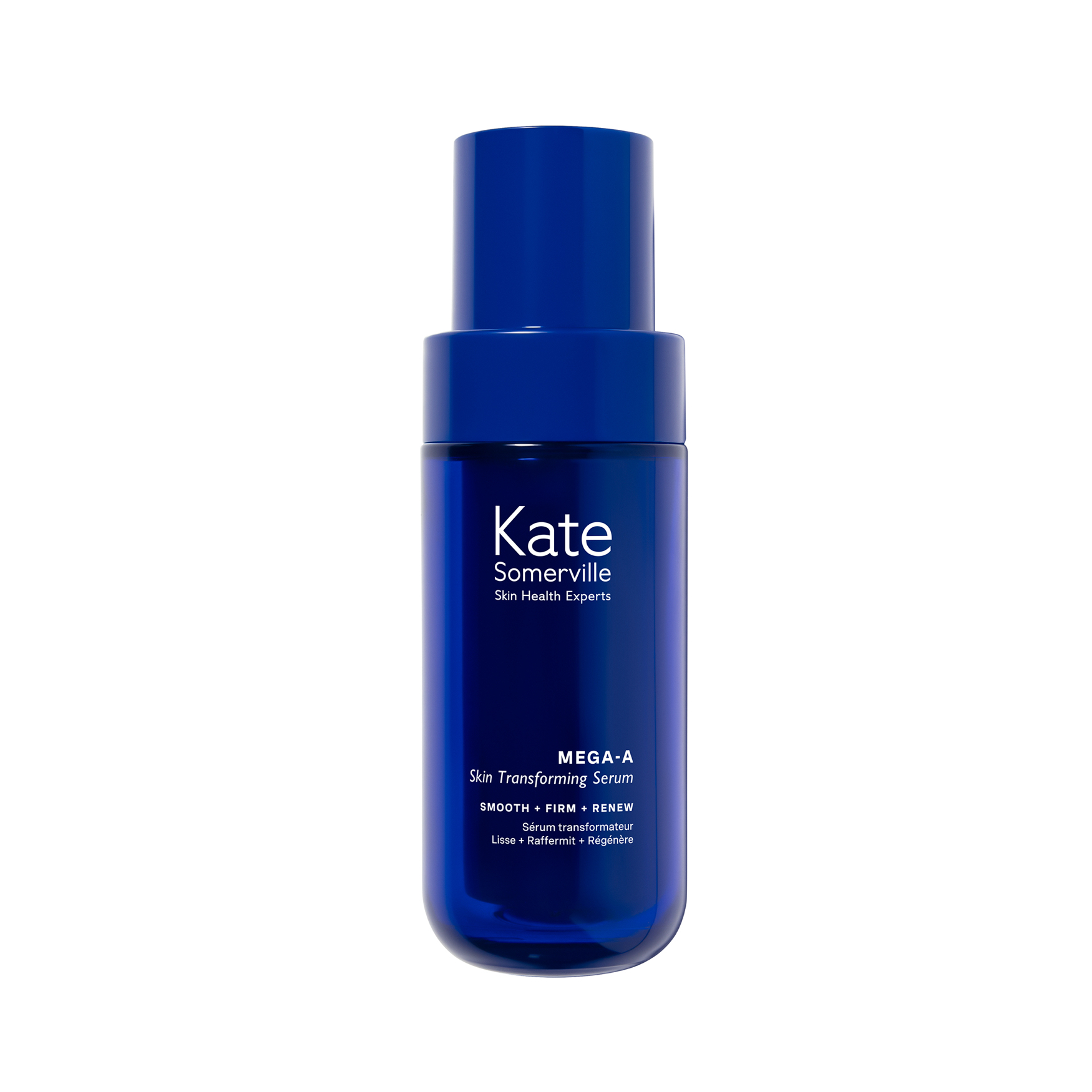
Thanks to an advanced retinoid known as retinal, this serum is a powerful one when it comes to ensuring skin is kept smooth, firm and bright.
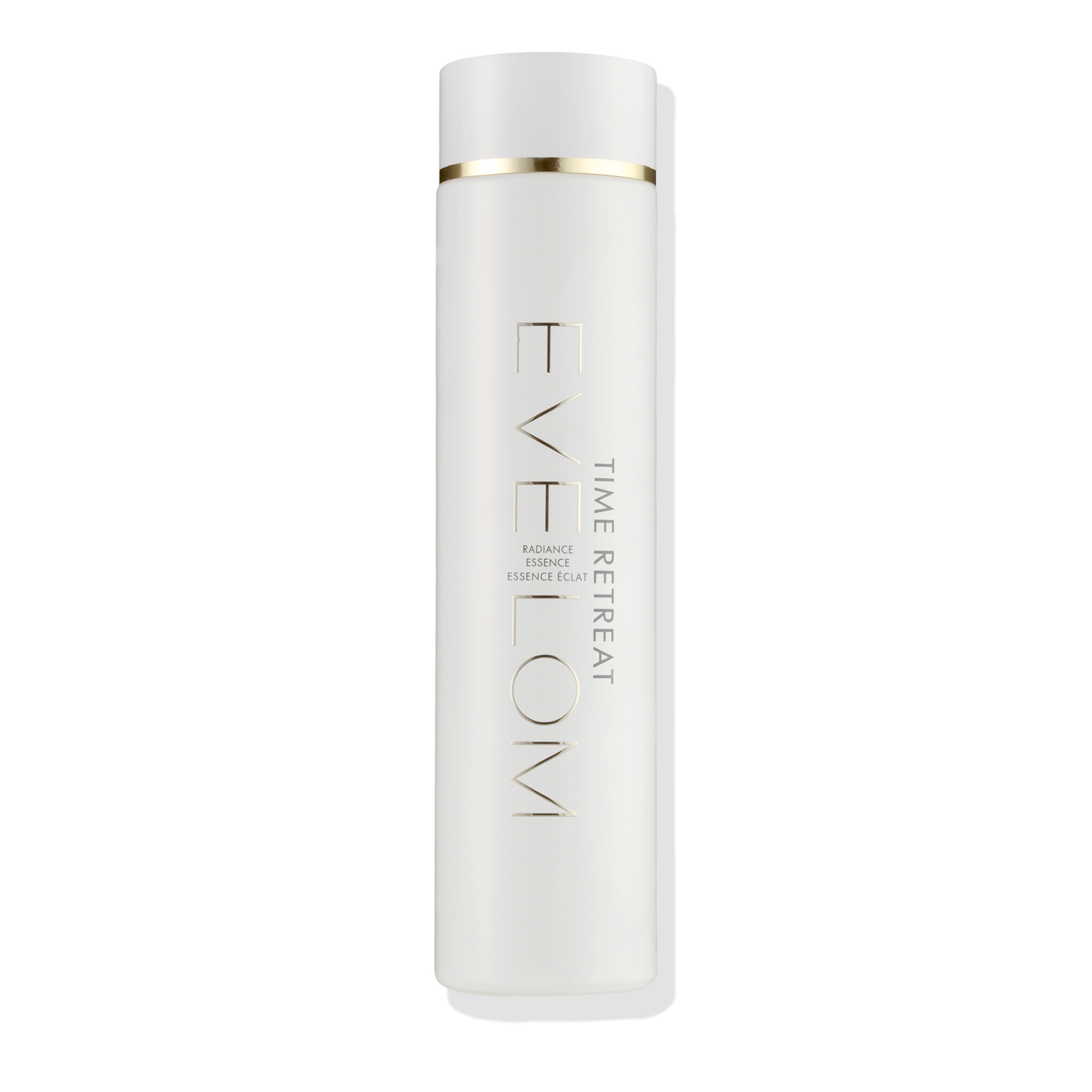
This potent essence helps skin to deal with the effects of pollution—another contributing factor to signs of skin ageing.
7. Targeted Skincare
"In 2025, the demand for personalisation will drive the skincare industry, with people seeking solutions tailored to their individual skin concerns," says Kerr. "From skin DNA tests to customisable products, consumers want targeted treatments that address their unique needs."
Aestheticians and dermatologists have already seen a rise in demand for specific treatments such as acne or rosacea-focused facials as awareness about early intervention has grown. "I expect this momentum to increase in 2025, as more people seek treatment earlier, preventing advanced stages and prolonged discomfort," she adds. "This reflects a shift towards proactive care, sparking demand and innovation from brands."
There's also a growing movement for age-driven treatments and products. "In 2024, we observed a significant shift towards products marketed to older generations, particularly women in their late forties and fifties—a demographic that has been underserved for too long," says Toomey. "By 2025, approximately 1.1 billion people worldwide will be in perimenopause or menopause, driving a strong demand for better, more targeted solutions for the effects of hormonal changes."
Hormones play a pivotal role in changing skin conditions, and there's been a notable shift in consumer understanding in recent years. "Beyond the well-known hormone-acne connection, more attention is being given to dryness, itching, collagen loss and other skin conditions linked to hormonal fluctuations," she explains. "As women become more informed and empowered, they'll increasingly adapt their skincare routines to support their hormonal health."
Shop the Trend:
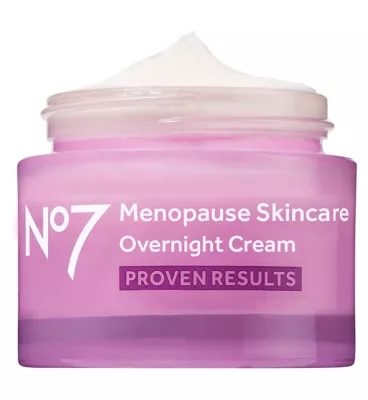
No7's menopause skincare range helps deal with the signs of reduced oestrogen and collagen production and the increased dryness that comes with the onset of menopause.
Grace Day is a beauty editor and content creator. She has over 10 years of beauty-industry experience, spanning editorial, retail, and e-commerce, which gives her a unique understanding into how people shop for their beauty routines.While studying for a history degree (specialising in the history of beauty) and working as a beauty adviser in department stores, Grace started writing her own beauty blog in order to share the products she discovered while dealing with acne. After graduating, she moved to Beauty Bay as beauty editor and content manager. Grace is currently a beauty contributor to Who What Wear. She has also written for Hypebae and PopSugar and works as a brand consultant and copywriter.
-
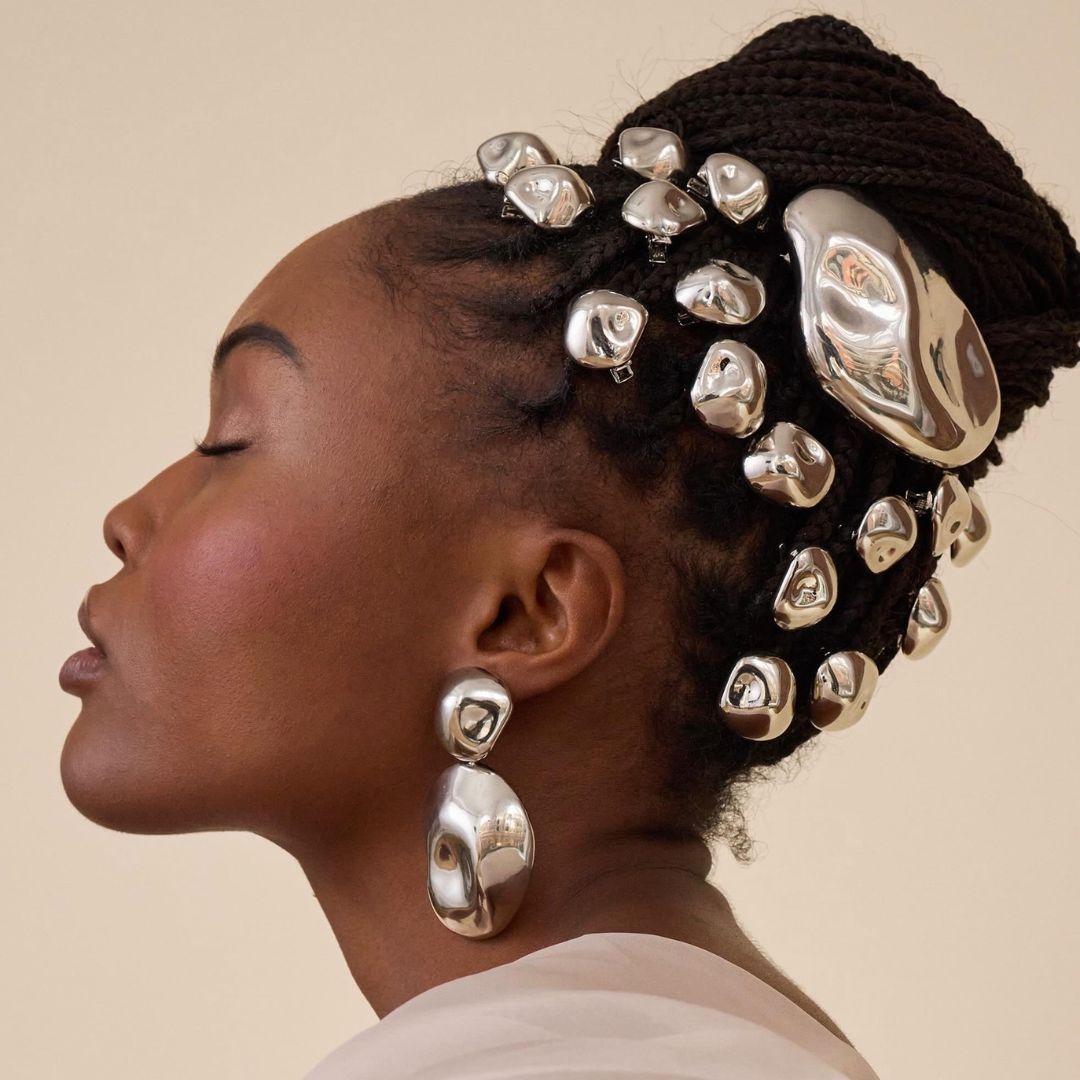 All the Chicest People I Know Have Been Dabbling in This Breathtaking 2025 Hair Trend
All the Chicest People I Know Have Been Dabbling in This Breathtaking 2025 Hair TrendFuturistic and stunning.
By Alyssa Brascia
-
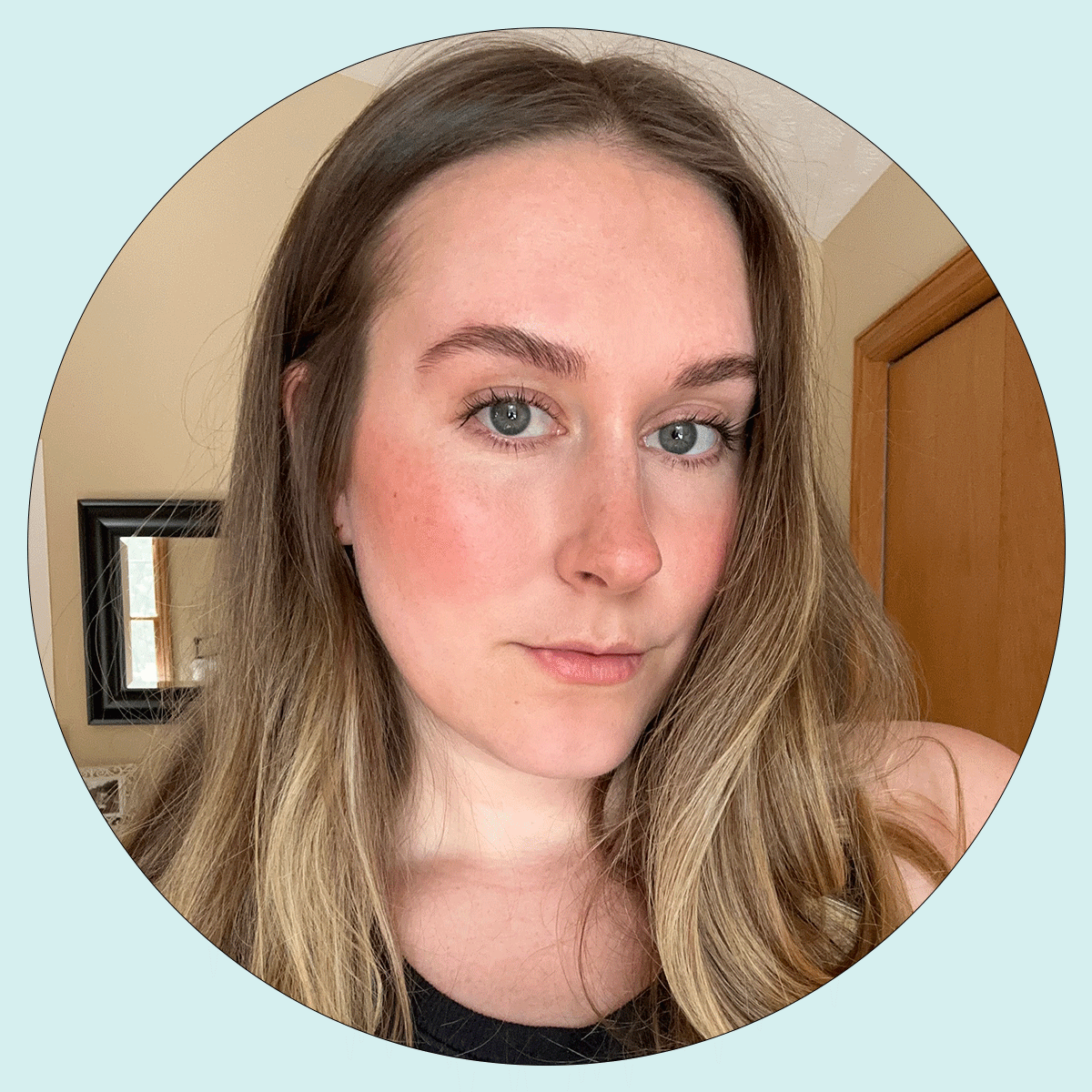 3 People Texted Me to Ask What They Should Buy Before Sephora's Sale Ends—Here's My Short List
3 People Texted Me to Ask What They Should Buy Before Sephora's Sale Ends—Here's My Short ListMy top 10 recommendations.
By Kaitlyn McLintock
-
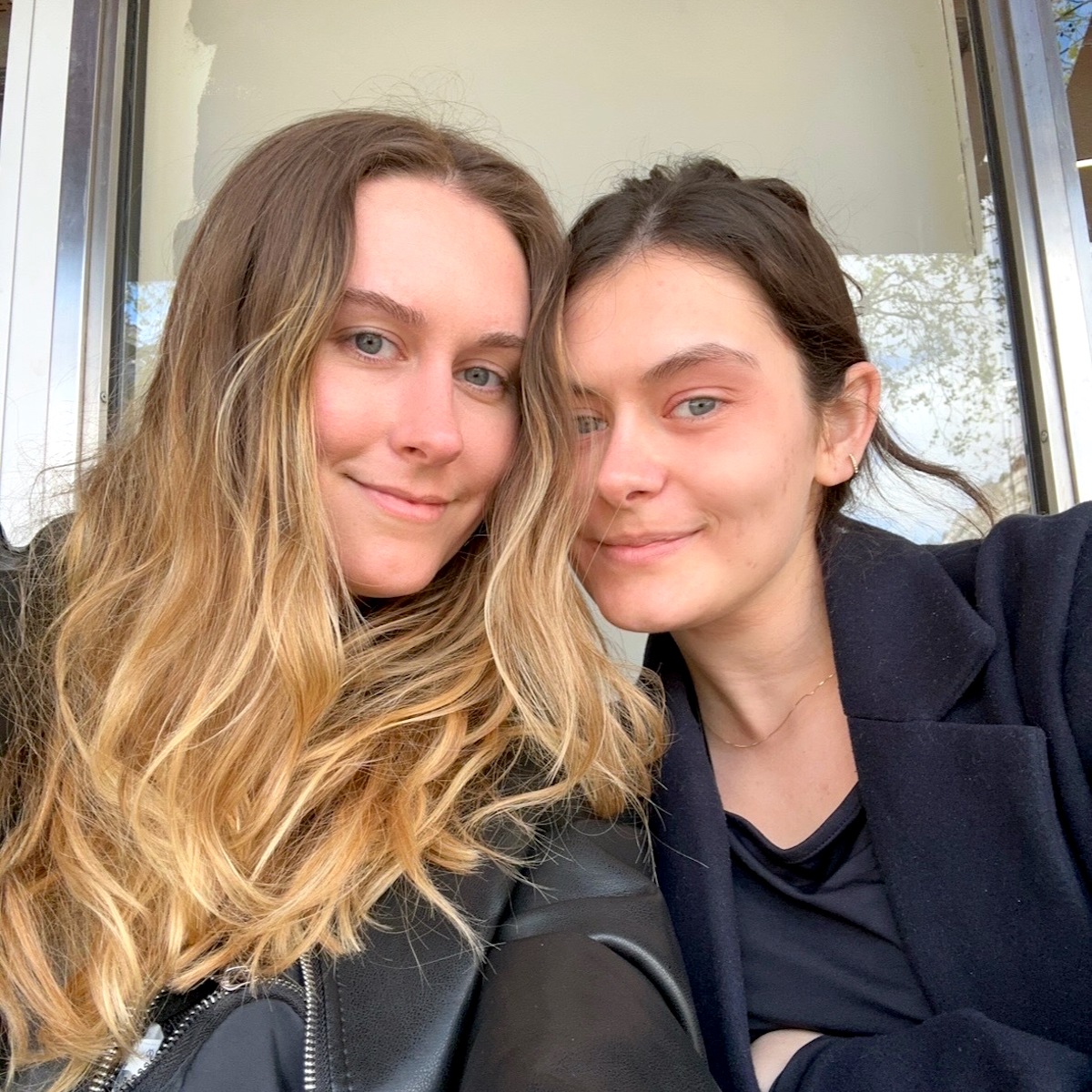 My Sister and I Have Opposite Skin Types, But These Products *Magically* Work for Both of Us
My Sister and I Have Opposite Skin Types, But These Products *Magically* Work for Both of UsThese are our "unicorn" products.
By Kaitlyn McLintock
-
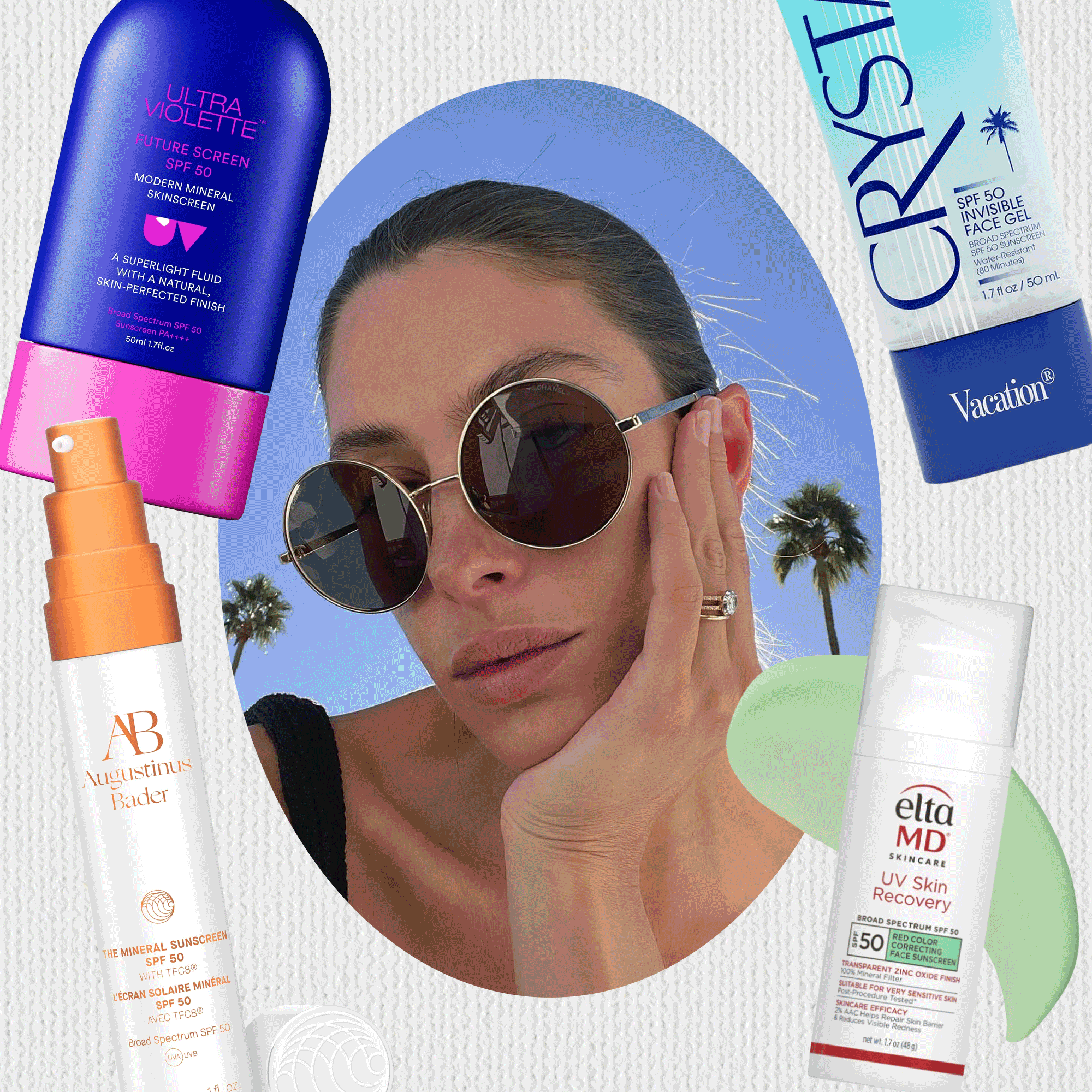 It's About to Be Hot and Sunny—TG—So Allow Me to Introduce You to 2025's Best New Sunscreens
It's About to Be Hot and Sunny—TG—So Allow Me to Introduce You to 2025's Best New SunscreensDon't settle for a subpar SPF.
By Kaitlyn McLintock
-
 I Polled Our Editor Slack Channel—10 French Beauty Products We’d Buy From Ulta’s Spring Sale
I Polled Our Editor Slack Channel—10 French Beauty Products We’d Buy From Ulta’s Spring SaleBy Alyssa Brascia
-
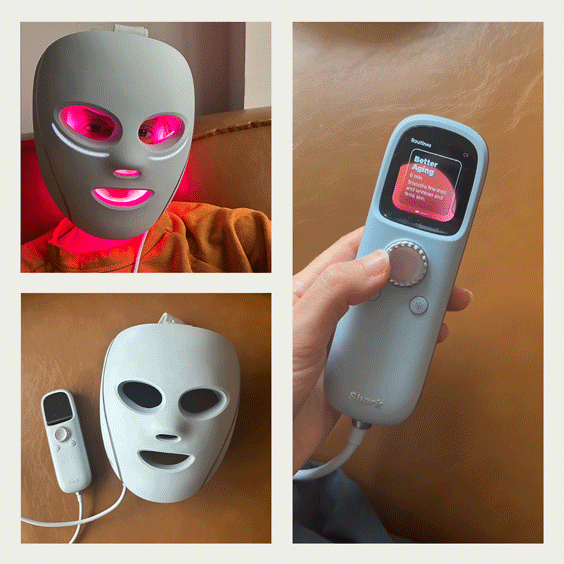 I've Tested $2850 Worth of LED Masks—Shark's New Model Is the One I'm Recommending to Friends
I've Tested $2850 Worth of LED Masks—Shark's New Model Is the One I'm Recommending to FriendsMy full review after wearing it for 67 days.
By Jamie Schneider
-
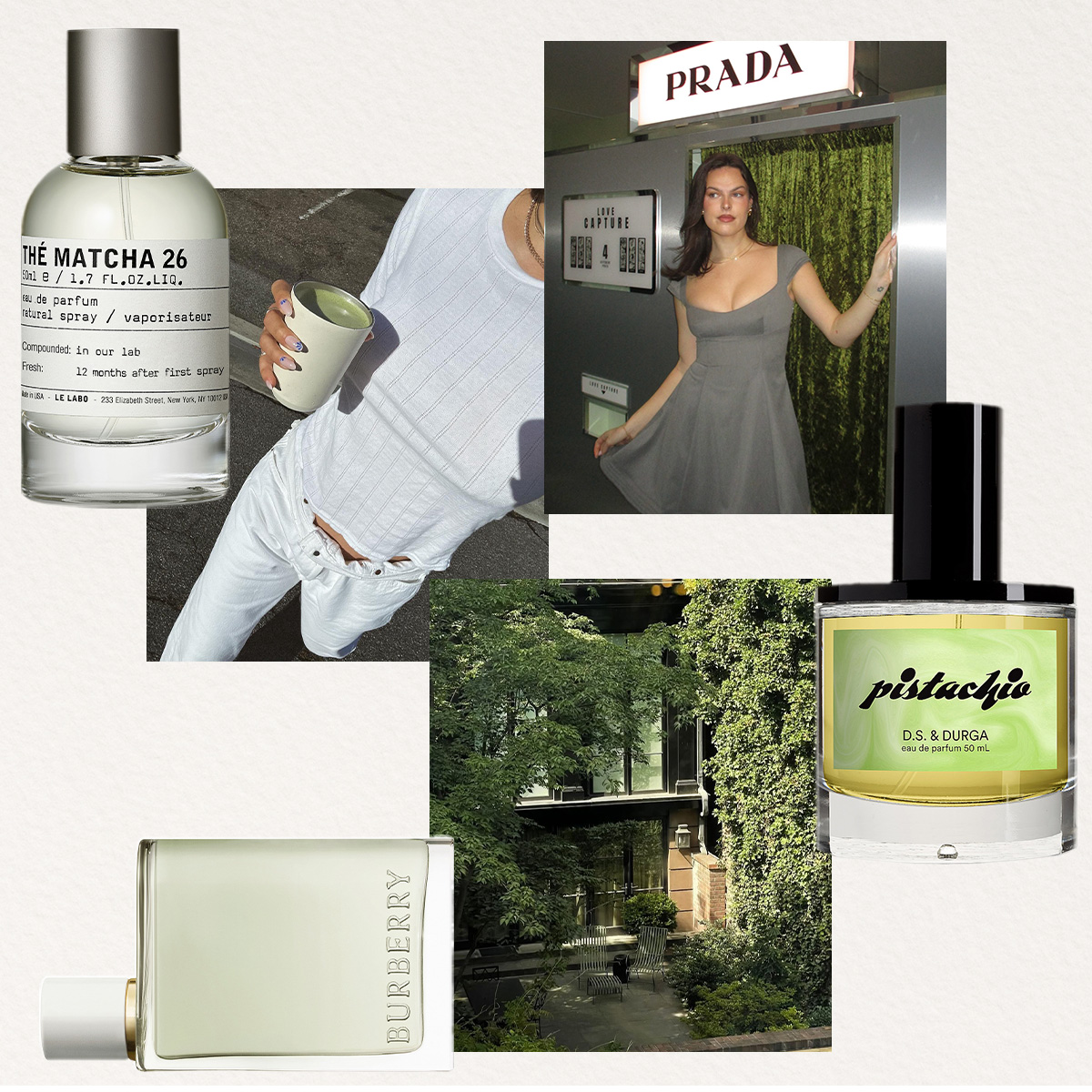 Matcha! Pistachio! Pear! 2025 Is the Year of Lush Green Scents, so I Created a Shopping Manual
Matcha! Pistachio! Pear! 2025 Is the Year of Lush Green Scents, so I Created a Shopping ManualThese 15 scents are like spring in a bottle.
By Kaitlyn McLintock
-
 5 Underrated Pillars of Youthful and Glowing Skin, According to Zendaya's Facialist
5 Underrated Pillars of Youthful and Glowing Skin, According to Zendaya's FacialistI'm taking so many notes.
By Shawna Hudson
